Potemkin village
description: structure built solely to deceive others into thinking that a situation is better than it really is
93 results

Designing Social Interfaces
by
Christian Crumlish
and
Erin Malone
Published 30 Sep 2009
Download at WoweBook.Com Community Management 389 Continue to resist calving off new groups until they are clearly and undeniably needed. Building out a thorough structure of anticipated groups or discussions before a site has any real life in it creates a “Potemkin Village,” an empty, fake site that dissipates any early momentum it might otherwise gather across too many cubbyholes. Figure 15-3. Instead of building a Potemkin Village, the architects of the relaunched dead.net site started with a judicious few groups and then let the community spawn the rest. Download at WoweBook.Com 390 Chapter 15: Good Cop, Bad Cop Collective Governance Determine how much self-governing you want your community members to do, and then give them the tools to do it with.
…
One of Us, One of Us.. . . . . . . . . . . . . . . . . . . . . . . . . . . . . . . . . . . . . . . . . . . . . . 353 Relationships Find People Adding Friends Circles of Connections Publicize Relationships Unfriending The Ex-Boyfriend Anti-Pattern Groups Further Reading Download at WoweBook.Com 353 355 361 369 371 373 375 376 381 Contents xiii 15. Good Cop, Bad Cop.. . . . . . . . . . . . . . . . . . . . . . . . . . . . . . . . . . . . . . . . . . . . . . . 383 Community Management Norms Role Model Potemkin Village (Anti-Pattern) Collective Governance Group Moderation Collaborative Filtering Report Abuse What’s the Story? Further Reading 384 384 388 388 390 391 392 394 396 397 16. Where in the World?.. . . . . . . . . . . . . . . . . . . . . . . . . . . . . . . . . . . . . . . . . . . . . 399 The Local Connection Being Local Face-to-Face Meeting Party Calendaring Reminding Geo-Tagging Geo-Mapping Geo-Mashing Neighborhood Mobile and Location Further Reading 399 400 401 410 416 420 422 425 428 429 432 438 Part V.
…
This doesn’t preclude attending to and learning from the innovations and revealing mistakes of your users, but it is a proven method for getting patterns and norms of behavior established from the get-go. Figure 15-2. By manifesting as a full participant, a founder can seed the community with great content while actively modeling the intended behavior and reinforcing the norms and expectations of a new community. Potemkin Village (Anti-Pattern) Users may want separate areas for discussing separate topics, and site creators may have an elaborate vision of a complex arrangement of topic and groups, but instead of creating a complicated empty scaffolding in hopes of enticing community to take root (the “if you build it, they will come” fallacy), start small and compact, and then prepare to grow organically (Figure 15-3).
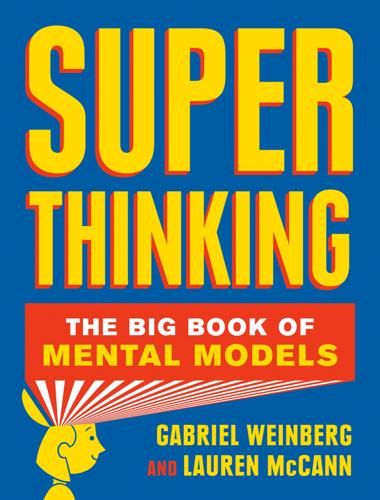
Super Thinking: The Big Book of Mental Models
by
Gabriel Weinberg
and
Lauren McCann
Published 17 Jun 2019
Securities and Exchange Commission, the blood samples collected were actually run on outside lab equipment that Theranos purchased through a shell company. The Enron and Theranos tactics both exemplify another dark pattern, called a Potemkin village, which is something specifically built to convince people that a situation is better than it actually is. The term is derived from a historically questionable tale of a portable village built to impress Empress Catherine II on her 1787 visit to Crimea. Nevertheless, there are certainly real instances of Potemkin villages, including a village built by North Korea in the 1950s near the DMZ to lure South Korean soldiers to defect, and, terribly, a Nazi-designed concentration camp in World War II fit to show the Red Cross, which actually disguised a way station to Auschwitz.
…
Nevertheless, there are certainly real instances of Potemkin villages, including a village built by North Korea in the 1950s near the DMZ to lure South Korean soldiers to defect, and, terribly, a Nazi-designed concentration camp in World War II fit to show the Red Cross, which actually disguised a way station to Auschwitz. In film, The Truman Show depicts a Potemkin village on a massive scale, where the character Truman Burbank (played by Jim Carrey) resides in an entirely fake town filled with actors as part of a reality TV show. A form of this dark pattern can occur online when a website makes it seem like it has more users or content than it actually does in order to get you to participate. For example, the infamous dating site Ashley Madison (which targets people already in relationships) was found to be sending messages from fake female accounts to lure males in.
…
W., 104 business case, 207 butterfly effect, 121, 122, 125, 201 Butterfly Effect, The, 121 Butterworth, Brian, x buyout, leveraged, 79 bystander effect, 259 cable television, 69, 100, 106 Caesar, Julius, 244 calculus, 291 call your bluff, 238 cameras, 302–3, 308–10 campaign finance reform, 110 Campbell, Donald T., 49–50 Campbell’s law, 49–50 cancer: breast, 156–57, 160–61 clusters of, 145 lung, 133–34, 137 cap-and-trade systems, 42–43 capital, cost of, 76, 77, 179, 182 careers, 300–301 decisions about, 5–6, 57, 175–77, 201, 207, 296 design patterns and, 93 entry barriers and, 305 licensing and, 306–7 Carfax, 46 Cargill, Tom, 89 cargo cults, 315–16 caring personally, 263–64 car market, 46–47 Carrey, Jim, 229 carrot-and-stick model, 232 cascading failures, 120, 192 casinos, 220, 226 cast a wide net, 122 catalyst, 112–13, 115, 119 Catherine II, Empress, 228 causal loop diagrams, 192–93 causation, correlation and, 134, 135 cellphones, 116–17 center of gravity, 112 central limit theorem, 152–53, 163 central tendency, 147 chain reaction, viii, 114, 120 Challenger, 31–33 challenging directly, 263–64 change, 100–101, 112–13, 129 resistance to, 110–11 chaos, 124 balance between order and, 128 chaos theory, 121 chaotic systems, 120–21, 124, 125 Chatelier’s principle, 193–94 cheating, 50 Chekhov, Anton, 124 chess, 242 chilling effect, 52–54 China, 231, 276 choice, 62 paradox of, 62–63 Christensen, Clayton, 296, 297, 310 Cialdini, Robert, 215–17, 219–21 circle of competence, 317–18 climate change, 42, 55, 56, 104, 105, 183, 192 Clinton, Hillary, 70, 97 clustering illusion, 144–45 CNN, 220 Coase, Ronald, 42 Coase theorem, 42–43 cobra effect, 50–52 Coca-Cola, 305 cognitive dissonance, 27–29, 216 coin flips, 143–44, 154–55, 158–59 Cold War, 209, 235 collateral damage, 53–54, 231 collective intelligence, 205 collectivist versus individualist, in organizational culture, 274 college, 209–10 choice of, 58–60 rankings of, 50, 137 Collins, Jim, 109, 254 commandos, in organizations and projects, 253–54 commitment, 87–88 escalation of, 91 influence model of, 216, 220 commodities, 283 commons, 36–38, 43 Common Sense (Paine), 221–22 communication, high-context and low-context, 273–74 competence, circle of, 317–18 competition: and crossing the chasm, 312 moats and, 302–5 perfect, 283 regulatory capture and, 305 sustainable competitive advantage, 283, 285 complexity, complex systems, 185–86, 192, 194 diagrams and, 192–93 simulations and, 192–94 compound interest, 69, 85 Concorde fallacy, 91 conditional probability, 156 Confederate leaders, 113 confidence intervals, 154–56, 159 confidence level, 154, 155, 161 confirmation bias, 26–28, 33, 103, 159 conflict, 209, 226 arms races, 209–12, 214 game theory and, see game theory confounding factor, 134–35, 139 conjunction fallacy, 9–10 conscientiousness, 250 consensus, 202 consensus-contrarian matrix, 285–86, 290 consequence-conviction matrix, 265–66 consequences, 35 unintended, 35–36, 53–55, 57, 64–65, 192, 232 containment, 233, 237 contests, 35–36 context-switching, 71, 74 continental drift, 24–25, 289 contrarian-consensus matrix, 285–86, 290 Contrarian’s Guide to Leadership, The (Sample), 28 control group, 136 conventional wisdom, 5 convergent thinking, 203 conviction-consequence matrix, 265–66 cooperation, 215, 226 tit-for-tat, 214–15 correlations, 134, 135, 139 corruption, 307 Cortés, Hernán, 243–44 cost-benefit analysis, 177–86, 189, 194 Costco, 70 cost of capital, 76, 77, 179, 182 cost of doing business, 232 counterfactual thinking, 201, 272, 309–10 cramming, 83, 262 credible intervals, 159 crime, 16, 161, 231, 232 broken windows theory and, 235–36 Cringley, Robert X., 253 critical mass, viii–x, 114–15, 117, 119, 120, 129, 194, 308 critical thinking, 201 crossing the chasm, 311–12 crossing the Rubicon, 244 crowdsourcing, 203–6, 286 culture, 113, 273 organizational, 107–8, 113, 273–80, 293 customers, 300 development of, 294 personas for, 300 types of, 298–300 winner-take-most markets and, 308 Cutco, 217 Danziger, Shai, 63 dark patterns, 226–29 Potemkin villages, 228–29 Darley, John, 259 Darwin, Charles, 100, 101, 291 data, 130–31, 143, 146, 301 binary, 152 dredging of, 169–70 in graphs, see graphs mean in, 146, 149, 151 meta-analysis of, 172–73 outliers in, 148 streaks and clusters in, 144 variance in, 149 see also experiments; statistics dating, 8–10, 95 daycare center, 222–23 deadlines, 89 death, causes of, 17 death by a thousand cuts, 38 debate, 225 decisions, 1–2, 11, 31, 127, 129, 131–33, 175, 209 business case and, 207 choices and, 62–63 cost-benefit analysis in, 177–86, 189, 194 decision fatigue and, 63–64 decision tree in, 186–90, 194, 215 Eisenhower Decision Matrix, 72–74, 89, 124, 125 irreversible, 61–62, 223–24 opportunity cost and, 76–77, 80, 83, 179, 182, 188, 305 past, analyzing, 201, 271–72 pro-con list in, 175–78, 185, 189 reversible, 61–62 sequences of, 144 small, tyranny of, 38, 55 utilitarianism and, 189–90 Declaration of Independence, 222 deep work, 72, 76, 88, 278 default effect, 87–88 Defense, U.S.
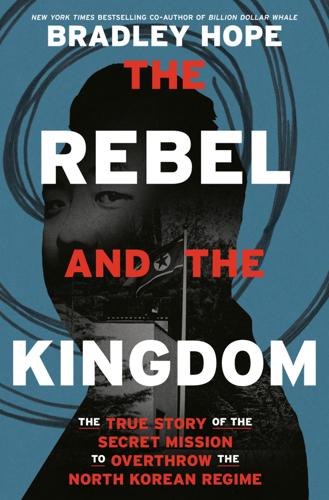
The Rebel and the Kingdom: The True Story of the Secret Mission to Overthrow the North Korean Regime
by
Bradley Hope
Published 1 Nov 2022
An observer looking through strong binoculars on the South Korean side might also spot what appears to be a village on the northern side called Kijong, with colorful concrete buildings and street sweepers coming through at regular intervals. Zooming in from the border, analysts soon realized the buildings, constructed in the 1950s, were hollow inside. No one lives there. It is a real-life Potemkin village. * * * — Given the extreme tension and scrutiny at the DMZ, crossing the North Korean border with China, in the north, has been the route favored by nearly all North Korean escapees. But this crossing has been perilous for a whole other set of reasons. The Chinese government took a position that no one leaving North Korea could be interpreted as a refugee, and therefore should be promptly arrested and sent back.
…
It was surprisingly empty—like a beautiful mansion of a millionaire on the outside, but with almost no decorations and extremely modest furnishings inside. Even the refrigerator was mostly empty, a detail that Ahn remembered struck him as particularly depressing. In a way, it wasn’t all that different from the Potemkin villages on the North Korea side of the demilitarized zone. The only room with a bit of character was the propaganda room, which was full of pictures of Kim Jong-un and mantras of the regime. Embassy workers would have been expected to study North Korean political literature daily in addition to attending frequent special discussions about the country’s history led by So.
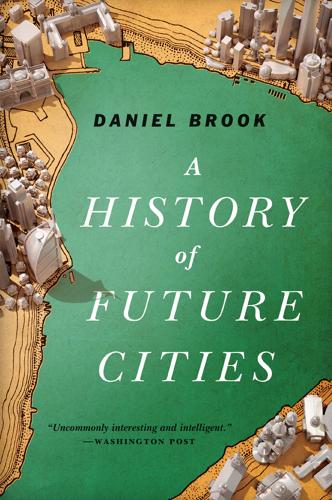
A History of Future Cities
by
Daniel Brook
Published 18 Feb 2013
“They were able to compare all that they had seen abroad with what confronted them at every step at home: slavery of the majority of Russians, cruel treatment of subordinates by superiors, all sorts of government abuses and general tyranny.” As another Russian wrote at the time, “There was only one subject of conversation in the army from generals down to the humblest private—how wonderful life was abroad.” Their homeland’s showcase modern capital seemed nothing but an oversized Potemkin village. In 1816, six young officers from the elite Imperial Guards formed a secret society to bring constitutional government to Russia. St. Petersburg, they believed, deserved a government as modern as its buildings and its people. And St. Petersburg deserved to be run by Petersburgers: the officers called for the expulsion of foreign experts from the Russian government.
…
A joke began spreading around Russia that attested to the new reality: A phone rings in Moscow. The man picks up to hear, “I’m calling from St. Petersburg.” He responds, “Don’t begin by threatening me!” With Matviyenko ensconced in the mayor’s office, never to have to face the voters again, she and her patron in the Kremlin were free to advance their vision of St. Petersburg as a Potemkin village. While major planned infrastructure improvements like a high-speed rail connection to Moscow and a beltway around the city were downsized, delayed, and plagued by pilfered funds, Putin shined up central St. Petersburg. Putin envisioned his rehabilitated hometown as a window through which Westerners could gaze at Russia, be reassured by how European it looked, and return home confident that the great empire to the east has finally become a “normal” European country.
…
Putin envisioned his rehabilitated hometown as a window through which Westerners could gaze at Russia, be reassured by how European it looked, and return home confident that the great empire to the east has finally become a “normal” European country. St. Petersburg was to be a cynical stage set of a Westernized Russia that Putin had no intention of fostering beyond the city’s boundaries. Like a true Potemkin village, the authorities cleaned up the front façades of the city’s historic imperial center while allowing the backs of the buildings to rot, a shambles of peeling paint, broken windows, and cracking stucco. The Kunstkamera’s rear wall, safely hidden from its riverfront viewers, is sloppily painted two noticeably different tones of flaking blue paint.

How to Run a Government: So That Citizens Benefit and Taxpayers Don't Go Crazy
by
Michael Barber
Published 12 Mar 2015
Hence one of Russia’s greatest military leaders has become famous in history not for what he actually accomplished, but for having these fake villages named after him – the Potemkin villages. (Another way to achieve legacy is to have something named after you.) Not everyone has pulled off such a massive deception of a visiting dignitary (and historians debate whether Potemkin himself did), but what we might call the ‘Potemkin Syndrome’ is alive and well. The chief minister of Punjab was shocked by the photographs we showed him of Punjab schools, not because he hadn’t ever visited schools, but because, whenever he had done so, the authorities had done the equivalent of a Potemkin village makeover in advance. Even for a minor celebrity like me, if they knew I was coming they tidied up and made sure the teachers were present.
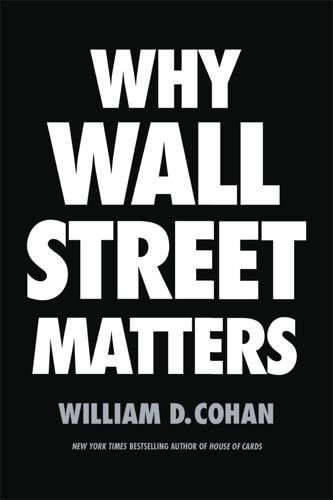
Why Wall Street Matters
by
William D. Cohan
Published 27 Feb 2017
Most trading is now done electronically. To be sure, a number of important financial institutions—among them Goldman Sachs, American Express, and AIG—still have their headquarters in the vicinity of Wall Street. But by and large, Wall Street, the actual street itself, has become a mirage, a Potemkin village of a bygone era before computers and phones made physical interaction between traders and bankers somewhat obsolete. In mid-June 2016, Jim Cramer, the CNBC television anchor, tweeted a picture of the corner of Wall and Broad Streets, with the New York Stock Exchange in the background and the steps leading to the empty 23 Wall Street to the side.
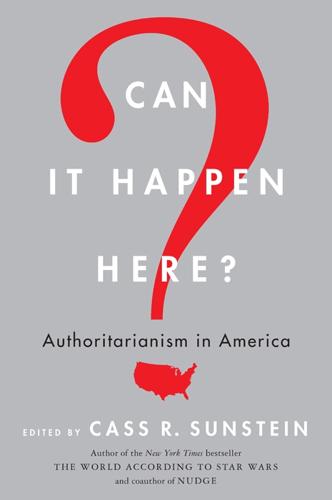
Can It Happen Here?: Authoritarianism in America
by
Cass R. Sunstein
Published 6 Mar 2018
It is far easier to align with congressional Republicans, who will protect him from Democrats who despise him and want to topple him with scandals. Having cast his lot with congressional Republicans, that means that he, too, will serve the same donor class. Trump may have run a populist campaign, but now that he is in power, he has pretty much embraced oligarchy. His populism is mostly sloganeering—it is a Potemkin village. We might say that it takes a Potemkin village to make a Trump presidency. The Future That’s the bad news. Here is the good news. First, Trump represents the end of a cycle of politics rather than the future of politics. American politics is divided into regimes in which one party’s agenda tends to dominate. Eventually that party runs out of steam, its coalition fragments, its political agenda becomes irrelevant and inadequate to solve current problems, and the evolution of the political system undermines it.

Our Enemies Will Vanish: The Russian Invasion and Ukraine's War of Independence
by
Yaroslav Trofimov
Published 9 Jan 2024
There, at the very end of June, Ukrainian troops captured the village of Potemkine, named after Kherson’s founder, Count Grigoriy Potemkin. A lover of Russia’s empress, Catherine the Great, Potemkin had governed that part of Ukraine after Russia detached it from Ottoman Turkey in 1774—and erected the famously fake “Potemkin villages” to impress the empress during her tour of the newly acquired parts of the realm. The Potemkine operation allowed the Ukrainians to threaten supply routes to the nearby town of Vysokopillia, a major stronghold occupied by Russian airborne forces. The ruins of Potemkine were now subjected to withering Russian shelling, and the Ukrainian military told me they wouldn’t let us travel there.
…
See Battle of Mykolaiv Mykolaiv Highway, 78, 328 Mykolaiv Patrol Police, 141–42 Myron, Captain, 227 N Nachman of Breslov, 130 Naletnikova, Galina, 97 National Guard of Russia, 37, 74, 89 National Guard of Ukraine, 48, 49, 82–83, 109, 172, 211, 354 NATO (North Atlantic Treaty Organization), 20, 57, 346 no-fly zone, 94 Russia’s “red lines,” 221, 222, 278 supplying of materiel, 161–62, 164, 347, 359 Zelensky and Ukraine membership, 21, 151 Naumov, Andriy, 150 Nauseda, Gitanas, 4 Nayyem, Masi, 224 Nayyem, Mustafa, 14, 224–25 Nazi Germany, 28, 39, 88–89, 92, 95, 96, 128, 129, 137, 144–45, 164, 189, 192, 205, 213, 286 Nemichev, Kostyantyn, 25–26, 73–74 neo-Nazis, 58, 82, 126, 152 Neptune R-360s, 162–63 Nesvoyeva, Natalia, 269, 287 New Russia (Novorossiya), 17, 19 Nikitichna, Vera, 209 92nd Mechanized Brigade, 74, 75, 121 93rd Mechanized Brigade, 73, 152–53 95th Air Assault Brigade, 49–50 NLAWs (Next Generation Light Anti-Tank Weapons), 28, 31, 63, 98, 104, 161, 201, 203 “Nobody loves losers,” 357 Nord Stream 2, 19, 94 North Macedonia, 150 Nova Kakhovka, 235 nuclear weapons, 19, 162, 192, 221–22, 277–79, 286, 321 “nullified,” 348–49 Nuzhin, Yevgeny, 336 Nykyforov, Sergii, 214–15 O Obama, Barack, 19, 27 Obolon, 55 Ochakiv Naval Base, 142 Odesa, 17, 220, 242–43, 361 oil and gas, 15, 26, 190, 193 Nord Stream 2, 19, 94 Okhlobystin, Ivan, 297–98 Okhmatdyt Children’s Hospital (Kyiv), 94 Okhtyrka, 72–73 Olenivka detention camp, 172–73, 243–44 Oliynyk, Maryna, 183 106th VDV Airborne Division, 139, 234 126th Coastal Defense Brigade, 134 150th Motorized Rifle Division, 85, 126 155th Marine Brigade, 102, 336–37, 351 “On the Historical Unity of the Russians and Ukrainians” (Putin), 21–22 Operation Bakhmut Meatgrinder, 335–36, 342, 362 Orange Revolution of 2004, 14, 219 “orcs,” 128, 134, 142, 303 Order of Courage, 324 Organization of Ukrainian Nationalists (OUN), 144–45 Orlan-10s, 103 Oskil River, 270–71, 273, 275, 281, 284, 296 Ottoman Empire, 81, 248 P Paevska, Yulia, xiii, 83–84, 125, 136–37, 226 Palamar, Svyatoslav, 137, 280 Panteleyeva, Ulyana, 90–91 “Partisan, The” (song), 131 Patriot MIM-104 missiles, 332, 344–45, 350, 361 peace negotiations, 92 in Belarus, 19, 58, 92, 149–50, 153, 154 grain exports, 242–43 in Istanbul, 149–55, 157–58, 242–43 Pechelulko, Oleh, 118–19 Pechersk, 1, 38, 39 Pelosi, Nancy, 345 Penn, Sean, 5, 46, 55 Perebeynos, Tatiana, 101, 215 Persian Empire, 348 Peskov, Dmitry, 306, 327 phosphorus bombing, 200 Pinchuk Art Centre (Kyiv), 238, 332 Pion 2S7s, 90 Plehve, Vyacheslav von, 272 Poddubny, Yevgeny, 153 Podil, 97, 99, 316–17, 355 Podolyak, Mykhailo, xiii, 38, 57–58, 92, 154, 161, 223 Poland-Ukraine relations, 144–45 Polish-Ukrainian border, 57, 59, 143–44, 179–80 Polovets, 198 Polyakov, Sergey, 352 Popasna, Battle of, 187–88, 251, 255 Poroshenko, Petro, xiii, 16, 20, 219, 356 author’s meeting with, 1–3 election of 2019, 1, 20–21, 79, 150 Potemkin, Grigoriy, 248 “Potemkin villages,” 248 Potemkine, 248–50, 264, 274 POWs (prisoners of war), 125, 172, 243–44, 279–80 prisoner exchanges, 21, 52, 163, 226, 279–80, 336 Presidential Office Building (Kyiv), 38, 39, 56–57, 63, 238 Prigozhin, Yevgeny, xiv, 185–88.

State-Building: Governance and World Order in the 21st Century
by
Francis Fukuyama
Published 7 Apr 2004
With the hindsight of more than thirty years, it is not clear whether state capacity (or political development, in Huntington’s terminology) can be separated from legitimacy all that easily. At the end of the 1980s the Soviet Union began collapsing and losing substantial amounts of state capacity precisely because its dictatorial character delegitimated the regime in the eyes of its citizens. Its apparent degree of political development was a Potemkin village, in other words, at the time that Huntington wrote Political Order. While there have historically been many forms of legitimacy, in today’s world the only serious source of legitimacy is democracy. There is another respect in which good governance and democracy are not so easily separated. A good state institution is one that transparently and efficiently serves the needs of its clients—the citizens of the state.
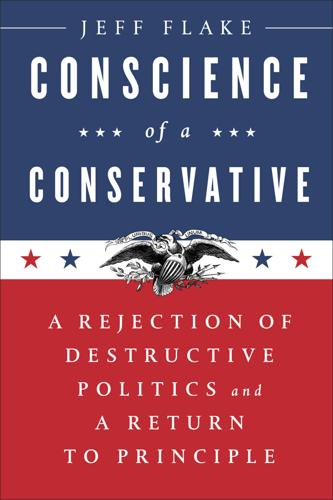
Conscience of a Conservative: A Rejection of Destructive Politics and a Return to Principle
by
Jeff Flake
Published 31 Jul 2017
My reply is as paradoxical as the whole of my life has been. You can help us most of all if you help the Soviet Union on its irreversible but immensely complicated road to democracy.” Of course, history was not over, and the road to democracy is not irreversible—not in Moscow, not in America, not anywhere. After erecting a Potemkin village of democracy for an agonizing decade or so, the Russians thrust forward a strongman amid the chaos, a strongman who was determined to reassemble the pieces of broken empire, in the process strangling Russian democracy in its cradle. Vladimir Putin would go on to be president and is president still, and just as he disrupted democracy in his own country, he is determined to do so everywhere.

Gorbachev: His Life and Times
by
William Taubman
THE PREHISTORY OF THE STAVROPOL area where Gorbachev was raised can be traced from the first millennium B.C., when various tribes entered the northwest Caucasus region. Stavropol itself was created in 1777 as a military base and proclaimed a city in 1785. At its center was one of several fortresses built along a line from Azov to Mozdok by Prince Grigory Potemkin (of Potemkin village fame), at the bidding of his lover, Empress Catherine the Great, to defend the southern border of the Russian Empire. Cossacks settled the area, eventually joined by serfs fleeing oppressive landowners, then by other peasants sent into forced exile. In the second part of the nineteenth century, Gorbachev’s paternal ancestors migrated from Voronezh in southern Russia, his mother’s from Chernigov in northern Ukraine.
…
The dissertation praised certain real Soviet achievements like the rise in rural literacy, but did so, in standard Soviet academic fashion, by comparing woebegone villages to even worse pre-1917 conditions. Phrases like “the socialist restructuring of the kolkhoz village has not entirely eliminated inequality” only hint at the gross inequality between town and country, which official ideology pledged to reduce. Reading between the lines, one can detect the Potemkin-village nature of libraries, clinics, nurseries, and old-age homes that barely deserved their names.86 Raisa Gorbachev had made herself into an accomplished social scientist. Particularly in her third chapter (“Change in the Character of Interrelations in Family Life: Affirmation of Socialist Norms and Customs in the Sphere of Nonproductive Life of the Collective Farm Peasantry”), which underlined the benighted position of women, she verged toward Western-style feminism, without using the label.
…
But there’s no one to complain to, comrades. You’ve got to take responsibility yourselves, to get down to work, in everything.”101 The comrades applauded and may even have meant it, but they also devoted a lot of time to concealing the full extent of the mess around the plant. As Chernyaev put it, “They had already set up ‘Potemkin villages’ before he arrived.”102 Visiting the home of an “ordinary worker,” Gorbachev was served lavish hors d’oeuvres, candies, and other delicacies. Boldin recalls that the road to a hospital’s main entrance got a new coat of asphalt from which “steam and the smell of hot tar were still rising.” Patients in the wards that Gorbachev visited were impersonated by “healthy, well-fed security officers with closely cropped hair, who warmly welcomed the medical staff and the hospital food, while finding it difficult to be precise about their ailments.”103 The Central Committee’s plenum on April 23 was a big deal, a “breakthrough,” Gorbachev proclaimed it later, the moment when he officially embraced “acceleration of social and economic development.”
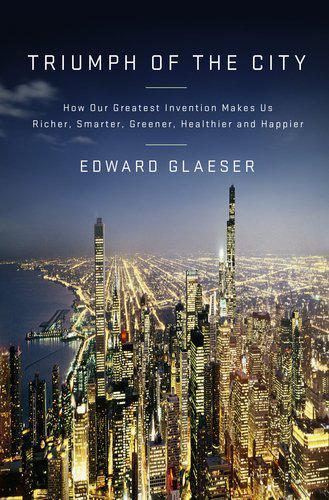
Triumph of the City: How Our Greatest Invention Makes Us Richer, Smarter, Greener, Healthier, and Happier
by
Edward L. Glaeser
Published 1 Jan 2011
Successful cities must build in order to accommodate the rising demand for space, but that doesn’t mean that building creates success. Urban renewal, in both Detroit and New York, may have replaced unattractive slums with shiny new buildings, but it did little to address urban decline. Those shiny new buildings were really Potemkin villages spread throughout America, built to provide politicians with the appearance of urban success. But Detroit had plenty of buildings; it didn’t need more. What Detroit needed was human capital: a new generation of entrepreneurs like Ford and Durant and the Dodge brothers who could create some great new industry, as Shockley and the Fairchildren were doing in Silicon Valley.
…
Bradley Milwaukee Minneapolis Missouri Mitchell, George Phydias Mittal, Lakshmi Mobutu Sese Seko Mohammed, Sheikh Monkkonen, Eric Montreal Moses, Robert Moving to Opportunity Mozart, Wolfgang Amadeus Mumbai building restrictions in crime in Dharavi neighborhood of disease in traffic congestion in transportation network in Mumford, Lewis murder Murthy, Narayana museums music Mysore Nagasaki Napoléon I, Emperor Napoléon III, Emperor Nashville National Association for the Advancement of Colored People (NAACP) National Labor Relations Act (1935) Native Son (Wright) neighborhood preservation, see preservation Netherlands Nevins, Allan New Brighton New Deal New Orleans Hurricane Katrina in poor in New Urbanism New York City African Americans in age statistics in Bloomberg as mayor of building construction in Central Park commuting in crime in death rates in decline of entrepreneurs in environmental footprint of fair-housing law in Fifth Avenue Commission in finance in founding of garment and fashion industries in garment worker strike in Giuliani as mayor of globalization and Greenwich Village Harlem Children’s Zone in Harlem Renaissance in health in Hell’s Kitchen housing in immigrants in industries in Koch as mayor of Lindsay as mayor of Lower East Side marital statistics in Midtown Manhattan Penn Station in poor in population explosion in port of preservation in Promise Academy in public transportation in publishing industry in rebirth of restaurants in reverse commuting and rise of September 11 attack on social connections in sprawl in streets in subways in suicides in Tammany Hall in taxes in theater in transit and income zones in travel between Boston and Upper East Side wages in Washington Square water supply for zoning regulations in New York Panorama New York Philharmonic New York State energy consumption in parkway system of New York Times NIMBYism Nimitz, Chester 9/11 attacks Norberg, Karen Obama, Barack Oklahoma City Old Vic Theatre Company Olivier, Laurence Olmsted, Frederick Law Otis, Elisha O’Toole, Peter Otto, Nikolaus Owen, David Paris building regulations in bus transit in Eiffel Tower in housing in La Défense in Montparnasse Tower in paving of planning of police force formed in restaurants in schools in sewage system in transit and income zones in parks Pascal, Blaise patent citations Patni Computers Pedro II, Emperor Penn Station Pennsylvania Railroad Pericles Perlman, Philip Philadelphia Main Line in transit and income zones in water supply in Philip Augustus Phoenix Phukan, Ruban Pinker, Steven Pirelli, Giovanni Battista Pittsburgh plague Plato police policies, see public policies politics ethnic power and social groups and Ponti, Gio populations: loss of new building and wages and Potemkin villages Poulsen, Valdemar Poundbury poverty rural suburban poverty, urban African Americans and and attraction of poor to cities education and in favelas and helping people vs. places in megacities path to prosperity from public policies’ magnification of in Rio slums and ghettos transportation and Prada, Miuccia preservation in New York City printing press prisons Procopius productivity education and geographic proximity and impact of peers on skills and wages and Promise Academy property rights prosperity and wealth education and environmentalism and path from urban poverty to urbanization and Protestantism public policies building restrictions consumer cities and education and environmental; see also environmentalism helping people vs. places immigration and industrial land-use regulations level playing field in national NIMBYism and poverty magnified by preservation, see preservation suburban living encouraged by urban poverty and zoning ordinances, see zoning ordinances public spaces publishing: in New York printing technology and Pulitzer, Joseph quality of life Quigley, John Raffles, Thomas Stamford rail travel Ramsay, Gordon Rand, Ayn Ranieri, Lewis Raytheon recession Reformation Renaissance restaurants Richardson, Ralph Richmond right-to-work states Rio de Janeiro favelas in transportation in riots River Rouge plant Riverside roads asphalt paving for highways New York City streets traffic congestion and, see traffic congestion Robson Square Rochester (Minnesota) Rochester (New York) Rockefeller, Nelson Rogers, Richard Roman Empire Roosevelt, Franklin D.

The Habsburgs: To Rule the World
by
Martyn Rady
Published 24 Aug 2020
For Christian von Mechel, see Kristine Patz, ‘Schulzimmer’, in Die kaiserliche Gemäldegalerie in Wien und die Anfänge des öffentlichen Kunstmuseums, ed. Gudrun Swoboda, vol. 2 (Vienna, Cologne, and Weimar, 2014), 437–57. 11. Matthew Rampley, ‘From Potemkin Village to the Estrangement of Vision: Baroque Culture and Modernity in Austria Before and After 1918’, Austrian History Yearbook, 47 (2016), 167–81 (174–5); Evonne Levy, Baroque and the Political Language of Formalism (1845–1945), (Basle, 2015), 26. 12. Carl E. Schorske, Fin-de-siècle Vienna: Politics and Culture (London, 1980), 48. 13. Rampley, ‘From Potemkin Village to the Estrangement of Vision’, 174. 14. Adolf Loos, ‘Ornament and Crime’ (1908), in Ulrich Conrads, Programs and Manifestoes on 20th-Century Architecture, trans.
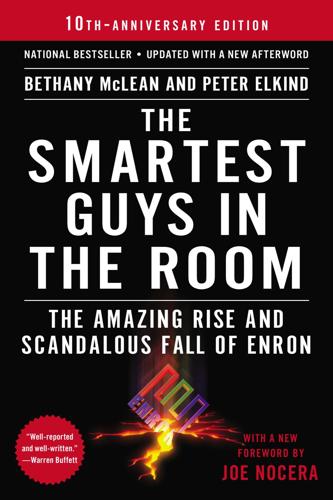
The Smartest Guys in the Room
by
Bethany McLean
Published 25 Nov 2013
Just as Enron’s financial executives convinced themselves that their financial shenanigans stayed within the rules, it seemed, so EES executives reasoned that this deception wasn’t a problem. Eventually, EES really would use all that space. Eventually, there would be hundreds of busy employees working the phones and trading energy and the division would be every bit as fabulous as they were telling investors. It just wasn’t quite there yet. In many ways, Skilling’s little Potemkin Village stood as the perfect metaphor for EES: so much of what outsiders were led to believe about the operation was at odds with what was really going on. Listening to Skilling and Pai describe it, EES sounded like a business that made sense; that’s one reason all the analysts were so willing to buy in.
…
“You’re doing good,” Skilling said with a grin. • • • On January 19 and 20, 2000, Enron held its annual analysts meeting. For the company, this event had become one of its key rituals of seduction. It was during the 1998 meeting that Skilling and the EES executives had pulled their little Potemkin Village stunt, creating a fake tableau of bustling employees who appeared to be putting together deals for the new retail operation. Over the years, as Enron had reported ever-better earnings and the stock had risen ever upward, the annual get-together with analysts had become, in the words of one participant, “practically like a revival meeting.”
…
income statements of, 60 profits of, 56, 59–60, 61, 62, 67–68, 93 renaming of, 186 risk-control group at, 111, 115 as Skilling’s model for Enron, 105 “Enron CFO’s Partnership Had Millions in Profit,” 371 Enron Cogeneration, 73 Enron Communications, 188, 243 Enron Corporation, xxii, 1–2, 3, 8, 19, 79–83 accounting scandals of, see accounting; Arthur Andersen all-employee meetings at, 229, 323, 352–53, 356 analyst-associate program at, 120, 122, 214–15, 334 analyst meetings of, 176, 179–80, 242–44, 284, 314, 320–21, 323, 345 Andersen’s risk assessment of, 147–48 annual reports of, xix, 19, 168, 238 assets of, 409 Audit and Compliance Committee at, 130, 407 balance sheet of, 77, 94–95, 150, 156, 157–58, 165, 310, 321, 325–26, 346, 363, 368, 384 bank loans of, 18–19 bankruptcy of, xxiv, xxv, 79, 91, 112, 129, 153, 158, 160, 172, 205, 241, 306, 401, 403–5, 406, 408–10, 413–14 BBB+ rating of, 238 as “black box,” 322, 323 capital investments in, 320 cash crisis at, 378–405 cash flow of, 108, 112, 133, 150, 157, 158–61, 230, 232, 237, 321, 323, 326, 331, 340, 349, 373, 378, 388, 400, 408 charitable donations of, 48, 96, 164, 165 Come to Jesus meeting at, 25–26, 27 corporate culture of, xxv, 25–26, 40, 116, 120–23, 140, 152, 187, 235, 240–41, 300, 332–33, 335, 372, 396–97, 401, 403 credit rating of, 154, 161 deal making prioritized at, 121–22 debt of, 150, 154, 156–57, 161, 232, 237, 321, 323, 379–80, 395, 399, 403, 408 deferred-compensation program at, 401 Dominion Energy joint venture of, 47–48 downfall of, 71, 91–92, 113, 132, 147, 277, 295 downgrading of, 102, 235, 348, 374–75, 394–95, 400, 401, 403 as dysfunctional workplace, 56, 63 earnings of, 91, 92, 93–94, 102, 109, 125–28, 132, 133, 134, 141–42, 229–30, 232, 321, 324–25, 331, 339–40, 342–43, 346, 349, 369, 382, 400 environmentally friendly image of, 174, 225 ethics and values of, 193, 269, 275, 310, 353 Finance Committee of, 199, 366 financial filings of, 41, 304, 320, 330–31, 371 financial reports and statements of, 15, 42, 155, 189, 230, 231, 321, 324, 329, 357, 368, 370 focus groups at, 372 fundamentals group at, 221 Gas Bank at, 35–37 growth of, 150–51, 179, 232 HNG-InterNorth as origin of, 10, 13–14, 33 Industrial Group at, 130 internal audit department at, 17, 19, 21, 41 investment banking fees of, 234 investor confidence destroyed in, 346 investor relations department of, 231, 322, 345, 360 jets of, xxii, 3, 4, 51, 53, 86, 90, 96, 122–23, 175, 251, 302, 338, 346, 353, 367, 401, 405 junk credit rating of, 14, 403 lawsuits against, xxi, 380, 382, 396, 410–11 legal department of, 18, 20, 276, 328, 405 liquid-fuels division of, 21 liquidity of, 391 lobbying by, 172, 173, 265 as logistics company, 322 London office of, 239 losses of, 306, 309, 410 market value of, 240 mottoes of, 326 myths and legends about, 35, 52, 172, 222 nepotism in, 4, 90 off-balance-sheet vehicles at, see off-balance-sheet vehicles as overleveraged, 165 P&L at, 138 performance reviews at, 117–18, 123, 138, 152–53, 154, 224 Policy Committee at, 328 political contributions by, 87, 88 postbankruptcy, 155, 218, 409 PRC at, 63–64, 91, 121, 154, 215, 279, 335, 345, 372 preferred stock of, 156 profits of, 27, 44–45, 47, 60–61, 85, 92–94, 104–5, 108, 130–31, 133, 176, 179, 204, 230, 282, 295, 313, 384, 388, 403 proxy statements of, 237–38, 322, 328 public relations at, 262, 322, 326, 332, 339, 346, 352, 364, 371, 377, 384, 417 reputation of, 76 Research Group of, 192, 193 retirement accounts and employee stock holdings, 241–42, 401, 414 Risk Assessment and Control (RAC) at, 115–18, 129–30, 132, 141, 158, 181, 192–93, 195, 218, 220, 227, 246, 346, 373, 399 risk-management manual of, 132, 133 salaries and bonuses at, 138, 240–41, 397–98, 414; see also specific individuals SEC filings of, 324, 354, 357, 394, 399–400, 401–2 share buyback program at, 105 shareholders in, 53, 380, 407, 409–10, 414 skepticism toward, 321 skyscraper built by, 239, 367, 378 start-up mentality of, 372 stock of, xxv, 85, 92–94, 98, 99, 102, 105, 109, 125–27, 150, 154, 156, 176, 187, 191, 192, 195, 220, 223, 229–45, 263, 288, 302, 306, 309, 313–14, 318, 320, 322–27, 329, 334, 336–38, 340, 342–56, 363–64, 366–67, 370, 371–72, 374–75, 378, 380, 385, 389, 391, 394, 395, 397, 401–3, 407, 409–10, 412, 415, 416, 420–21 structured finance at, 149, 151 tax-avoidance schemes of, 128–29, 289 tax department at, 327 tilted E logo of, 174 trading at, 42, 43, 85, 125–26, 324, 330–31 transaction support at, 142 unkept promises of, 183 Washington public-affairs office of, 86 water business of, see Azurix Enron Corporation board of directors, 68, 73, 124, 151, 220, 239, 277, 326, 366, 367 audit committee of, 41, 115 compensation committee of, 370 Fastow’s finance vehicles and, 168, 169, 197–99, 200–201, 305, 306–7, 324, 376, 380, 393 finance committee of, 198 Lay and, 96–99, 314, 344–45, 349–50, 402–4, 415–16 Mark and, 247, 253, 260–61 Skilling’s resignation and, 342–43, 347 Enron Corporation Bonus Plan, 404 Enron Development, 70, 73–76, 80 Enron Economic Development Corporation, 202 Enron Energy Services (EES), 171–72, 175–84, 189, 213, 228, 255, 262, 263, 265, 299–304, 314, 321, 339, 346, 359, 364, 388, 396, 398, 404, 414, 417, 430 bonus system at, 180 commodity contracts at, 178 energy management acquisitions of, 183 layoffs at, 346, 353, 358–59 losses at, 179, 300, 304, 333, 388, 416, 421 Potemkin Village of, 179–80, 242 RAC task force at, 301 risk management staff at, 181 total energy outsource contracts at, 178 trading desk at, 181, 300, 304 Enron Europe, 73, 75, 103, 209, 216, 239, 388 Enron Field, 86, 367 Enron Finance, 35, 55–56 Enron Gas Marketing, 34, 56, 60 Enron Gas Services, 354 Enron Global Finance, 133–34, 148, 150–52, 156, 158, 161, 163, 164, 166, 168, 170, 196, 198, 212, 229, 237, 239, 249, 304–5, 308–9, 316, 327, 330, 335, 355, 413 Enron Global Power and Pipelines (EPP), 94–95, 132, 138 Enron Industrial Markets, 355, 377 Enron Intelligent Network, 187–88, 242, 286, 290 Enron International (EI), 44, 76–84, 158, 246, 247, 248, 251, 258–63, 290, 315, 322, 326, 333, 354, 387, 396 balance sheet of, 77, 94–95 compensation and bonuses at, 78–79, 95, 111, 180 Dabhol project of, 79–83, 94, 102, 260, 315, 340, 342, 353, 366, 373, 399, 409 end of, 260–61 government financing for, 88–89 Shell’s negotiations with, 112 “snowballing” at, 77, 95 Enron Liquids Pipeline, 98 Enron Media Services, 226 Enron NetWorks, 211 Enron North America, 186, 193, 207, 213, 274, 275, 309, 333, 388, 413 Enron Oil, 15–25, 220 bonuses at, 16, 17, 19 corporate tax returns of, 24 fake companies set up by, see Ilsa; Petropol; Southwest fraudulent accounting practices at, 21, 23 profit shifting at, 18, 19, 21, 24 scandal surrounding, 15, 47, 375 Enron Oil and Gas (EOG), 93–94, 101, 108, 109, 126, 245 public offering of, 94 spinoff of, 109–10 stock of, 219 Enron Online (EOL), 221–24, 244, 379–80, 398, 403 Enron Power, 52, 53, 73, 96 “Enron Prepares to Become Easier to Read” (Smith and Emshwiller), 360 Enron Prize for Distinguished Public Service, xxiv, 240 Enron Services Handbook, 271 Enron West Power trading desk, 266, 269, 271–76, 278–79, 282–83, 300, 309, 339 Enron Wholesale, 276, 299, 300, 303, 334–35, 339, 387–88, 405 Enron Xcelerator, 302, 334 EOG, see Enron Oil and Gas EPP, see Enron Global Power and Pipelines equity analysts, 237, 340 equity investors, 189–90, 365 equity markets, 150, 154 equity offerings, 235 ERNB (Enron’s Rhythms Net Bet), 194 Ernst & Young, 148 EterniTV, 343, 344 Euromoney, 140 Evans, Donald, 385 Everglades, 254 Export-Import Bank, 74, 88–89 Exxon, 1, 5, 6, 7, 241 ExxonMobil, xxv, 241 fair market values, 205 Fallon, Jim, xiv, 334–35, 337, 404 FAS 125, 293 FAS 140, 157 Fastow, Andrew, xiii, xxiii, xxiv, 122, 131, 133–41, 143, 152, 156, 214, 227, 237, 264, 334, 335, 343, 347, 355, 357–58, 390, 425, 428 Azurix deal of, see Marlin background and education of, 134 Baxter’s concerns about, 152, 163, 333, 356, 408 children of, 139, 170 complex deals of, 133, 151, 155–56, 192, 383 COO aspirations of, 353, 359 deals of, 230, 251 early career of, 136 earnings and wealth of, 138, 165, 169–70, 201, 212, 313, 328, 362, 365–66, 376, 381, 414 on EES board, 184 EES financing and, 175–76, 182 as Enron CFO, 136, 140–41, 143, 150–56, 189–90, 198, 200, 209, 311, 322–23, 329–30, 345, 353, 357, 360–62, 373–74, 379, 384–85 Enron’s dependence on, 189 equity offering proposed by, 150 financial structures and deals created by, 141, 229 firing as CFO of, 377–78, 380–81, 387, 391 Fortune interview with, 322 as head of corporate development, 328–29, 354 homes of, 294, 354, 365 indictments of, 411–12 insecurity of, 139 interpersonal skills of, 138 investment banks and, 163–64, 165 JEDI and, 67 LJM consequences for, 371–77 LJM sale of, 329–30, 353, 360 performance reviews of, 138 personal investments of, 165–70 personality of, 139–40 private equity funds of, see LJM Project Raptor and, see Project Raptor in retail-energy business, 138–39, 172 Rhythms deal and, 191–97 risk-control alien to, 140 SEC investigation and, 371–72 self-compensation schemes of, 134 Southampton scheme of, see Southampton Place partnership structured finance deals of, see Special purpose entities Wall Street Journal article and, 370–71 Fastow, Carl, 134 Fastow, Jeffrey, 139, 189, 365, 380 Fastow, Joan, 134 Fastow, Lea, xiv, 134–35, 152, 166, 168, 334, 361, 377, 380, 414–15 at Enron, 137, 139 on Enron art committee, 365 government charges against, 412 as heiress, 138, 365 and SPEs, 167, 170, 189 Fastow, Matthew, 189, 365, 380 Fastow, Peter, 364, 365, 371 Fastow Family Foundation, 170, 196, 206, 365 Fat Boy, 269, 274, 276, 335 FBI, xxi, 5, 408, 418, 422 Federal Energy Regulatory Commission (FERC), 167, 223–24, 270, 271, 273–74, 276–80, 335 Federal Power Commission, 6 Fergus, Gary, 275–76 Fewell, Melanie, 301–2 Feygin, Anatol, xvi, 341 fiber-optic system, 185, 187–88, 288 Fidelity, 319, 340 Fifth Amendment, xxiii, 416 Financial Accounting Standards Board (FASB), 142, 144, 323 First Boston, see Credit Suisse First Boston First Call, 231 First City National Bank, 30, 73 FirstPoint Communications, 185 First United Methodist Church, 385, 423 First Union, 202, 343 Fitch, 238, 323, 380, 394, 403 Fleischer, David, xvi, 179, 229, 243, 259, 314, 323, 325, 375 Florida, 254 as major market, 10, 11 Florida Gas Company, 6–8, 10, 11, 19, 25, 46 Fluckiger, Kellan, 278 Forbes, 32, 72, 83, 94, 98, 234 Fortune, xxiv, 83, 94, 105, 111, 116, 239, 253, 278, 291, 321–23, 332 50 Most Powerful Women in Business, 253 Fortune 500, 137, 326 forwards, 37 Foster, Joe, 402–3 Fountainhead, The (Rand), 214 France, 248–49, 256 fraud, 276, 410–20, 422 Freeman, Charles, 388 Freeman, David, 281 free market, 2, 3, 48, 74, 89, 167, 172, 216, 264, 267 freight trading, 225, 396 FRENDS, 136–37 Frevert, Mark, xiv, 359, 361–62, 391 Fried Frank Harris Shriver & Jacobson, 329 Friends of Enron, 166, 167, 189, 364 front-end loaded earnings, 230 Frontline, 281, 428 fuel-supply contracts, 158 Furst, Robert, xvii, 200, 207–8, 381 GAAP (general accepted accounting principles), 142–43, 160, 161, 163, 408 Garcia, Kim, 180 Garten, Jeffrey, 83 gas, 50, 131, 172, 177, 178, 240 see also natural gas Gas Bank, 33–37, 137, 212 Gas Daily, 227 Gates, Bill, 230 Gathmann, Bill, 152 Gaza Strip, 258 GE Capital, 180 General Electric, 46, 53, 67, 74, 81, 132, 133, 230, 314 George (robotrader), 216–17 Gerstner, Lou, 31, 32 Get Shorty, 270, 274, 282 Gibney, Alex, 426 Gieselman, Scott, xvii, 378–79, 387 Giga information group, 244 Glass-Steagall Act, 162 Glisan, Ben, xiv, 152–53, 156, 159, 161, 168, 169, 212, 237, 260, 279, 304–7, 315, 340, 346, 366, 371, 375, 377, 388, 394, 400, 412, 413–14, 420–21 as Fastow confidant, 152, 154 LJM and, 196–97, 198, 211, 306, 307, 309, 311, 364, 412 performance review of, 154 Global Crossing, 188 Global Finance, see Enron Global Finance Global Galactic agreement, 205 Global Water Reporter, 247 Goldman Sachs, 50, 109, 126, 164, 179, 222, 229, 234, 243, 259, 314, 321, 323, 325, 375, 378–79, 387, 401, 427 Goldman family, 417 Gorbachev, Mikhail, 240 Gordon, Rick, xvii, 234–35, 313 Gore, Al, 88 grain futures, 226 Gramm, Phil, 87, 96, 280 Gramm, Wendy, xiv, 96, 280 Grasso, Richard, 395 Gray, Rod, xiv, 95, 250, 253, 255 greater fool theory, 74 Greater Houston Partnership, 86 Greenspan, Alan, 240, 385 Greenwich NatWest, 194 Gross, Richard, xvii, 353 growth portfolio managers, 232 Grubman, Jack, 231, 234 Grubman, Richard, xvii, 325–26, 374 Grutzmacher, Patricia, 148 Guam, 74, 251 Guatemala, 74 Guinness Brewery, 364 Gulf & Western, 10 Gulf States Oil and Refining, 16 Hadar, Miriam, 134–35 Haedicke, Mark, xiv, 275–77, 309, 335, 405 Hain, Mary, 273, 274, 275 Hall, Stephen, 276, 277 Halliburton, 87 Hamel, Gary, xiv, 226, 239 Hannon, Kevin, xiv, 42–43, 57, 122, 288, 296, 415 indictments against, 412 Harding, John, xiv, 18–19 Harrison, William, 395 Harvard Business School, 31, 32, 45, 46, 51, 52, 57, 71, 73, 76, 391, 416 case studies of, 222–23, 239 Harvard Law School, 419 Hawaii, 125–0, 293 HealthSouth, 413 heat-rate swaps, 207 Hecker, James, xvi, 148–49, 362, 383 Heckmann, Richard, 248–49 hedge funds, 219, 319–21, 325, 385 hedging, 37, 131, 300, 305–6, 307–8 Hendrick, Max, III, 357, 360–61 Henry Pratt, 30 Hermann, Bob, 128 Herring, Joanne, 10 Herring, Robert, 10 Herrold, Beau, 424 Herrold, Linda Phillips, see Lay, Linda Highfields Capital, 325 high-tech investments, 324 Hinds, Michael, LJM and, 196, 304 Hirko, Joe, xiv, 185, 186, 243, 287–88 indictments against, 412 historical-cost accounting, 39–40 HMOs, 184 HNG InterNorth, 11–13 hog futures, 226 Hogin, David Ralph, 17 Hoglund, Forrest, xiv, 101, 108–9, 245 hold ratings, 234, 321 Holder, Eric, 428 Holman, Hugh, 244 Hopley, John, 117 Horton, Stan, 391, 401 Hotelero del Atlántico, 78 “Hotel Kenneth-Lay-a,” 148–49, 362 House Energy and Power Subcommittee, 173 Houston, Tex., xxi, 4, 7, 8, 10, 12–13, 15, 406, 409, 411, 415–16, 418, 422–23 Houston Astros, 86, 423 Houston Chronicle, 9, 33, 350–51, 429 Houston Fire Department, 33 Houston Forum, 417 Houston Natural Gas (HNG), 10–13, 108, 128 InterNorth merger with, 16, 17, 25, 46, 47, 73, 162, 395 Houston Pipeline, 56 Howard, Kevin, xiv, 294, 295–97, 415 indictment against, 412 Hueston, John, 419, 420, 422 Hulme, Ron, xiv, 240, 244 Human Rights Watch, 81–82 Humble Oil, 5, 6 Humphrey, Gene, 60, 137–38, 202 Hunt family, 1 Hurt, Harry, III, xvii, 94, 318–19 HVAC (heating, ventilation, air conditioning), 183 hydrocarbons, 108 hydroelectric power, 221, 271–72 IBM, 31, 178 ICI, 48, 49 Illinois, 252 ImClone, 413 Independent System Operator (ISO), 266, 267, 268, 270, 271, 274, 276–78 India, 74, 79–83, 109, 240, 315, 342, 345, 353 Indonesia, 74, 260 In Search of Excellence, 31, 121 Inside FERC, 227 insider trading, 410–11, 414, 416 Institute for Advanced Study, 202 Institute for Policy Studies, 88 Institutional Investor, 83, 136, 232 institutional investors, 176, 231, 232, 243–44, 252, 326, 340 Interior Department, U.S., 6–7, 24 Internet, 70, 92–93, 184, 187–88, 223, 243, 256, 284–85, 288, 308, 343, 367 collapse of, 309, 331, 412 mania of 1990s, 185, 186, 222, 288 providers, 191, 332 start-ups, 251 stocks, 185, 231, 315 InterNorth, 11–13, 15, 16, 33, 61, 96, 108, 350 HNG merger with, 16, 17, 25, 46, 47, 73, 162, 395 investment bankers, 166, 190, 230, 234, 251, 252 personal investments of, 165, 167 investment banks, 133, 162, 164, 233, 387, 407 Enron’s fees to, 162–63 Enron Tiers for, 164–65, 194, 294 Global Finance compared to, 151–52, 165 investment grade credit ratings, 236, 239, 341, 374, 394–95, 402 IPOs, 191, 233 IRS, 20, 129, 170, 358 “Is Enron Overpriced?
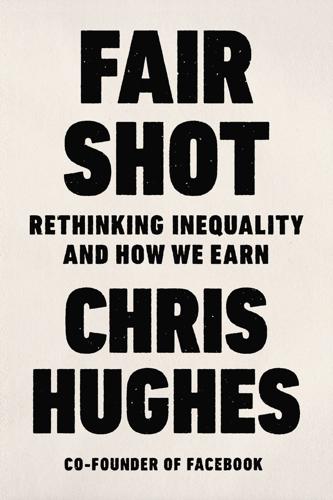
Fair Shot: Rethinking Inequality and How We Earn
by
Chris Hughes
Published 20 Feb 2018
When Nina Munk later visited the village, she discovered that the computers had never been connected to the Internet, and all of them were eventually stolen. The rest of the afternoon was full of similarly upbeat and evasive claims. Everything was going “extremely well,” but nothing seemed right. The Millennium Village felt more and more like a Potemkin Village to me. Finally, after spending just two or three hours in Dertu, we returned to the Land Rovers and departed. I left with more questions than answers, and over the next couple of years, I got them. Almost from the beginning, the project had been beset by controversy. A series of papers published just after my visit in 2010 called into question the Millennium Village’s marketing materials.
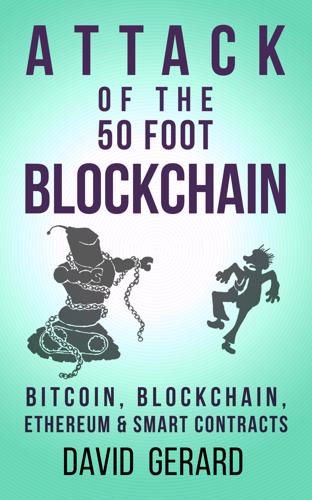
Attack of the 50 Foot Blockchain: Bitcoin, Blockchain, Ethereum & Smart Contracts
by
David Gerard
Published 23 Jul 2017
They mention The DAO as an excellent worked example of why this is needed.389 Microsoft: Azure Blockchain as a Service promises public, consortium or private blockchains, with any consensus algorithm you like, definitely reaching public release status with at least some of the promised features some time soon maybe. You will be able to write smart contracts in Solidity, offering all the advantages of that language that we’ve already seen with The DAO.390 Hyperledger: IBM offer the IBM Blockchain, based on Hyperledger. Hyperledger.org is a corporate open source Potemkin village of the sort IBM has long favoured: the illusion of an open project, with no “there” there. I spent half an hour dredging the site and could not find one clear statement of what this software is actually intended to do, let alone differences from and similarities to existing blockchains. Even Bitcoin blog CoinDesk notes: “Among the doubts facing Hyperledger is a perceived lack of clarity on what might be ultimately produced by the initiative.”391 If you click long enough, you’ll find a page where the participating companies have dumped their unfinished blockchain experiments.392 The main code contributor is Digital Asset Holdings; their joining announcement (on their own site, not hyperledger.org) gives as technical details only that Hyperledger is an append-only ledger and has an actual Bitcoin-style blockchain in it.393 (Digital Asset Holdings was founded by Blythe Masters, pioneer of the credit default swap, the financial instrument behind the global financial crisis of 2008 that may have provoked Nakamoto to finally release Bitcoin.)
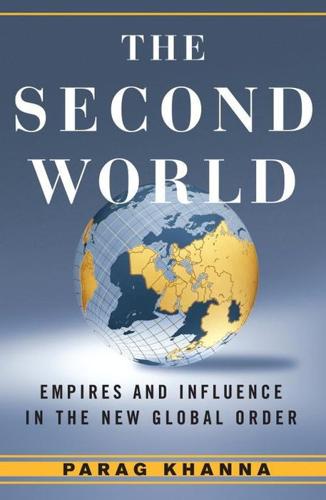
Second World: Empires and Influence in the New Global Order
by
Parag Khanna
Published 4 Mar 2008
In second-world societies, some percentage of the population lives a modern lifestyle—globally connected with reliable high-wage employment—but coexists with a narrow middle class and the mass of the poor. Second-world countries would fall into a global middle class, except no such middle class exists. As in the first world, second-world states have growing public economies and inward investment, but like the third world, they have vast black markets and Potemkin villages.38 Brazil is a second-world giant that draws funds from the global market, while millions of its citizens have no idea what that is. Second-world countries are often medieval in their geographical distribution of wealth, with the capital city generating a majority of national income—and retaining it.
…
Lucky, then, that Ukrainians give lifts to total strangers for a token fare. “We suffered enough together, so we still trust each other,” explained one such commuter-entrepreneur driving out of downtown Kiev late at night. As in Russia, capitalism blew its first chance to make a good impression, and Kiev, like Moscow, is a Potemkin village whose urban grandeur masks poverty that grows the farther one moves from the center. Turning Ukraine into the next Poland means elevating it from its strikingly third-world attributes, such as an overwhelming share of foreign investment directed to the capital alone and untaxed barter bazaars around the country.

The Internet Is Not What You Think It Is: A History, a Philosophy, a Warning
by
Justin E. H. Smith
Published 22 Mar 2022
For many, the only available adaptation to this new landscape is to transform our human identity into a sort of imitation of the decidedly non-human forces that sustain the internet, to trade a personality for an algorithmically plottable profile, in effect, to imitate a bot. Paying Attention Bots can do many things. They can monitor, track, harrass, impress with their ability to generate natural-seeming sentences, and even make jokes. But in the end they are like the cardboard-cow cutouts of a Potemkin village, as they are not themselves capable of conjuring that precious resource the new economy is intent on extracting: to wit, attention. Attention is special among mental faculties for a number of reasons. Perhaps first among these is that it is not only a mental faculty, but also, irreducibly, a moral state.
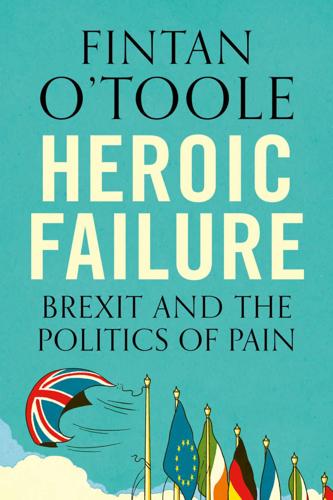
Heroic Failure: Brexit and the Politics of Pain
by
Fintan O'Toole
Published 22 Jan 2018
Long after that doctrine has been abandoned in Moscow and Peking it will continue to flourish under the marquees of England. Although most of them have the courage of a half-eaten worm… and the intellectual vigour of dead sheep, they are the true heirs of Marx and Lenin.’45 In an elitist view of the world, rules would not matter. The EU’s institutions were Potemkin villages, flimsy and easily knocked over. Brexit would, naturally, be settled behind the scenes by unelected power-brokers. Merkel would do as she was told and, as the EU is a German front, Brussels would snap its heels and produce the proper offer of infinite cake. That this belonged in the realm of an imaginary construct is obvious from its most glaring contradiction: if the German car bosses could order Merkel to produce a lovely Brexit for Britain, why could the British car bosses, who opposed Brexit, not stop it altogether?

America's Bitter Pill: Money, Politics, Backroom Deals, and the Fight to Fix Our Broken Healthcare System
by
Steven Brill
Published 5 Jan 2015
From the day he started the job he had wanted to crunch CMS’s data on hospital pricing in order to present price comparisons to the world. He ultimately persuaded CMS to do that, but, by his own account, that only came after the Time special report on medical prices created headlines around the issue, and his boss, Secretary Sebelius, and her advisers allowed him to push ahead. SONYA AND THE POTEMKIN VILLAGE Sivak had invited Gunderson to come see him because one aspect of the Obamacare website project that he had maneuvered his way into reviewing was driving him crazy. The design of the home page for the federal exchange (that would now be the gateway for the multiple insurance offerings from thirty-six states) was terrible.
…
In the months that would follow the October launch of the exchange, it was the only part of the site that never broke down and never had to be fixed. “We did it all for a bit less than a million dollars,” Gunderson told me. “For us, that’s a pretty big deal.” As with Park’s building of the comparison shopping website, the unveiling, in late June 2013, of Sivak and Gunderson’s cool-looking home page—which the president loved—created a Potemkin village. On the surface, things looked great. But behind the façade, where CGI and the other contractors were trying to build the real website—and piling up bills that would ultimately reach $840 million—there was not much to look at. “FAST, TARGETED, LOCKED-DOWN DECISIONS ARE NEEDED” One of the steps a worried Todd Park took from his new position as U.S. chief technology officer at the White House in the winter of 2013 was to convince HHS secretary Kathleen Sebelius that McKinsey & Company, the blue ribbon consulting firm, should be hired to look in on the implementation effort and, in consultants’ jargon, “pressure test” the process.
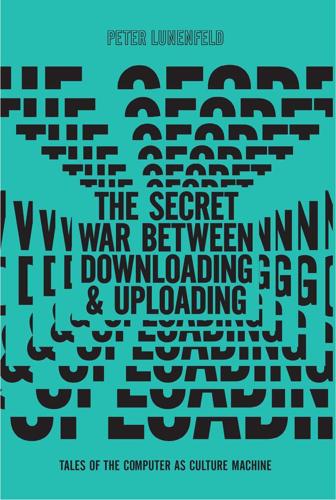
The Secret War Between Downloading and Uploading: Tales of the Computer as Culture Machine
by
Peter Lunenfeld
Published 31 Mar 2011
Designer Michael Beirut equivocates perfectly: “Not everything is design. But design is about everything.”10 T SIDEBAR Sears -vs.- VDNX In 1939, in a six-hundred-acre park in the north of Moscow, the Exhibition of the Achievement of the Soviet People’s 102 BESPOKE FUTURES Economy opened. Known as VDNX, this propaganda park was a Potemkin village, a trade and technology fair, and a model farm all wrapped up into one. VDNX was a phantasmagoric space where the Soviet iconography of happy, healthy workers, powerful tractors, and glistening satellites was mirrored by the bounty of prize pigs and luscious produce. It was a central showplace of the Stalinist spectacle, and truly fit Maxim Gorky’s idea of socialist realism as revolutionary romanticism.11 VDNX showed life not as it was lived but rather as it ought to be lived.

The Politics of Pain
by
Fintan O'Toole
Published 2 Oct 2019
Long after that doctrine has been abandoned in Moscow and Peking it will continue to flourish under the marquees of England. Although most of them have the courage of a half-eaten worm… and the intellectual vigour of dead sheep, they are the true heirs of Marx and Lenin.’45 In an elitist view of the world, rules would not matter. The EU’s institutions were Potemkin villages, flimsy and easily knocked over. Brexit would, naturally, be settled behind the scenes by unelected power-brokers. Merkel would do as she was told and, as the EU is a German front, Brussels would snap its heels and produce the proper offer of infinite cake. That this belonged in the realm of an imaginary construct is obvious from its most glaring contradiction: if the German car bosses could order Merkel to produce a lovely Brexit for Britain, why could the British car bosses, who opposed Brexit, not stop it altogether?

The Age of Illusions: How America Squandered Its Cold War Victory
by
Andrew J. Bacevich
Published 7 Jan 2020
From time to time, I trooped down to Washington to testify before some congressional committee. And on a few occasions, I appeared on national news programs, typically as a sort of foil for guests spouting establishment views. Virtually all of this was theater, as I soon came to realize. I had inadvertently become a minor player in what was the political equivalent of a Potemkin village, pretending to debate matters that were not in actuality up for discussion. All the chatter served one purpose only: It distracted attention from the shackles imposed by what passed for conventional wisdom. As for Donald Trump, he was now commanding a far wider audience. During the Bush era, he prospered and became a major media presence, treated as both laughingstock and sage.

My Father's Brain: Life in the Shadow of Alzheimer's
by
Sandeep Jauhar
Published 11 Apr 2023
Before coming that day, I’d read complaints online that The Hogeweyk’s amenities, often located at a substantial distance from the residential houses—as one would expect in a normal village—were largely inaccessible to residents unable to walk. If that were true, then wasn’t the facility a sort of Potemkin village, intended mostly for the benefit of caregivers or visiting relatives and not, primarily, for the residents it was entrusted to care for? Not surprisingly, Leo took exception to my question. “It is not fake,” he said as he walked me to the exit. Residents did participate in the village’s activities, he insisted, to the extent that they were able.
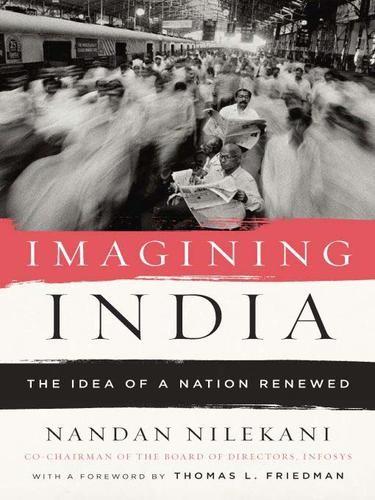
Imagining India
by
Nandan Nilekani
Published 25 Nov 2008
This would have a powerful domino effect in the following years as Indian businesses invested in IT to combine their own capital flows with India’s banks and stock markets. India’s regulators were, however, still lone rangers in a governing environment that was if not hostile, at least indifferent to IT systems. Beyond our capital markets, the 1990s saw countless instances of failed IT initiatives. We have struggled here with what Keniston called India’s “Potemkin village” problem—we have plenty of showcase “pilot projects” that we have failed to expand beyond a state or city level. More than 80 percent of state-led electronification projects in the 1990s failed. Innumerable pilot e-governance projects were launched with great fanfare and then forgotten. Our government departments remained, stubbornly, environments of paper pushers, filing cabinets and typewriters.
…
Union of India & Ors Permanent Account Numbers (PANs) pesticides PetroChina Phule, Jyotirao Pitroda, Sam PL-480 food aid Plague Prevention Measures Planning Commission pneumonic plague police politics, Indian: author’s views on ; bipartisan or coalition; caste and ; conservative vs. liberal ; economic impact of ; education and ; factionalism in ; information technology (IT) in ; language and ; leadership in ; mass protest in ; party organizations in ; see also specific parties; populist; regional ; see also government, Indian pollution Pondicherry pongamia Pope, Carl Population Bomb,The (Ehrlich) ports post offices Post-War Plan of Educational Development “Potemkin village” problem Prabhu, Suresh Pradhan Mantri Gram Sadak Yojana Prahalad. K. Praj Industries Prasad, Chandrabhan Prasad, Kalka Prasad, Rajendra Pratham preventive health care price controls prices, commodity Pringle, R. K. private schools “Private Schools for the Poor” (Tooley) productivity Project Genesis Project OASIS (Old Age Social and Income Security) property taxes protectionism Provident Fund Act (1925) provident funds public distribution system (PDS) Public Grievance and Redressal system Public Health Foundation of India (PHFI) public transportation Pudong, China Punjab Punjabi Suba Puratchi Thalaivar MGR Nutritious Meal Program (PTMGRNMP) Purushothaman, Roopa Qianlong, Emperor of China Qian Xinzhong “Question Box,” Quit India movement Radhakrishnan, S.
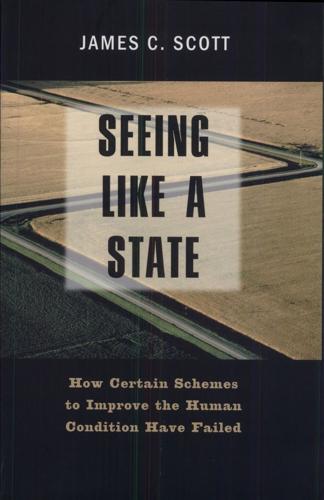
Seeing Like a State: How Certain Schemes to Improve the Human Condition Have Failed
by
James C. Scott
Published 8 Feb 1999
Such is even the case where, as in Stalinist collectivization, the state devotes great resources to enforcing a high degree of formal compliance with its directives. Those who have their hearts set on realizing such plans cannot fail to be frustrated by stubborn social realities and material facts. One response to this frustration is a retreat to the realm of appearances and miniatures-to model cities and Potemkin villages, as it were.1' It is easier to build Brasilia than to fundamentally transform Brazil and Brazilians. The effect of this retreat is to create a small, relatively self-contained, utopian space where high-modernist aspirations might more nearly be realized. The limiting case, where control is maximized but impact on the external world is minimized, is in the museum or the theme park. "° This miniaturization of perfection, I think, has a logic all its own, in spite of its implicit abandonment of large-scale transformations.
…
Here, incidentally, is where I think Goran Hyden's otherwise interesting book misses the boat altogether. The resistance of the Tanzanian peasantry seems less a consequence of some age-old "economy of affection" than a rational response to painful memories of the dire consequences of many state schemes, most of which had miscarried. 48. Elsewhere, in Tanga for example, there are cases of "Potemkin villages" being created for a Nyerere visit and dismantled later. See Hyden, Beyond Ujamaa in Tanzania, pp. 101-8. 49. Mwapachu, "Operation Planned Villages," quoted in Coulson, African Socialism in Practice, p. 121. 50. Henry Bernstein, "Notes on State and the Peasantry: The Tanzanian Case;' Review of African Political Economy 21 (May-September 1981): 57. 51.
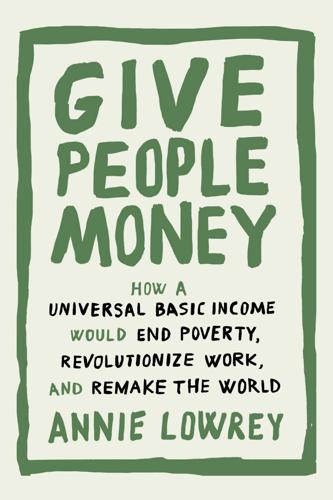
Give People Money
by
Annie Lowrey
Published 10 Jul 2018
“Stuff about how South Koreans are the tools of the Americans and the North Koreans will come to liberate us from our capitalist slavery.” Looking at the denuded landscape before us, this bit of pomposity seemed impossibly sad, as did the incomplete tunnel from North to South scratched out beneath us, as did the little Potemkin village the North Koreans had set up in sight of the observation deck. It was supposedly home to two hundred families, who Pyongyang insisted were working a collective farm, using a child care center, schools, a hospital. Yet Seoul had determined that nobody had ever lived there, and the buildings were empty shells.
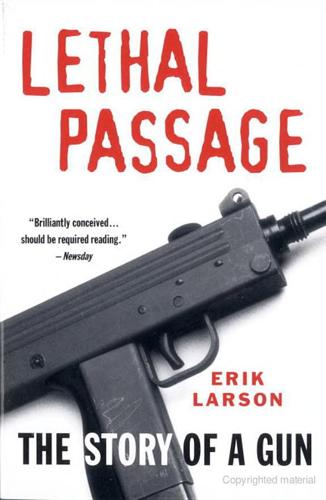
Lethal Passage
by
Erik Larson
Published 27 Jul 2011
From the highway Norfolk looked prosperous, with a perimeter of high glass buildings, a brand-new hotel, and a festive riverside development similar to Baltimore’s Harborplace. But I had been downtown several times before and knew that urban pressures had turned this portion of Norfolk into a Potemkin village. Two blocks in from the city’s gleaming rim, life seemed to stop. Abandoned buildings, some boarded, some just empty, lined block after block. The streets were clean, however. There were no piles of litter, no plumes of broken glass, and no people, just a clean desolation like that of a city awaiting a hurricane.
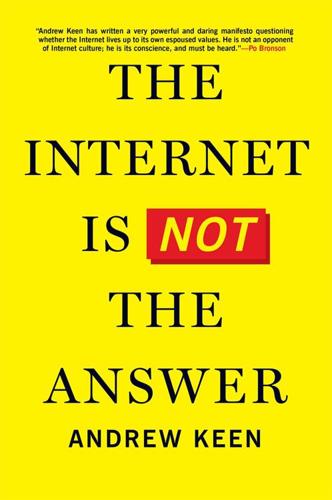
The Internet Is Not the Answer
by
Andrew Keen
Published 5 Jan 2015
The Italian-born Lampi hadn’t been the only late-eighteenth-century European to go to Russia to enjoy Catherine the Great’s largesse. Two English brothers, Samuel and Jeremy Bentham, also spent time there gainfully employed by Catherine’s autocratic regime. Samuel worked for Count Grigory Potemkin, one of Catherine’s many lovers, whose name has been immortalized for his “Potemkin villages” of fake industrialization he built to impress her. Potemkin gave Bentham the job of managing Krichev, his hundred-square-mile estate on the Polish border that boasted fourteen thousand male serfs.38And it was here that Samuel and his brother Jeremy, who joined him in 1786 in Krichev and is best known today as the father of the “greatest happiness” principle, invented the idea of what they called the “Panopticon,” or the “Inspection House.”
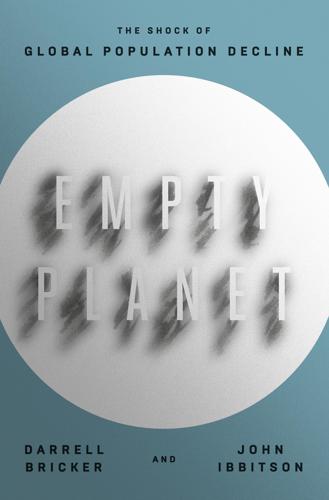
Empty Planet: The Shock of Global Population Decline
by
Darrell Bricker
and
John Ibbitson
Published 5 Feb 2019
The country is centrally and strategically located in East Africa, with the Indian Ocean, Uganda, and Tanzania on its borders. It also shares borders with Ethiopia, South Sudan, and Somalia. Yes, it’s a rough neighborhood, but Kenya represents a zone of relative calm within the region, which makes it attractive for international businesses. That said, the flash of a modern airport represents a bit of a Potemkin village. About 75 percent of Kenya’s workers are still occupied either full- or part-time in agriculture, which represents about a third of the economy.181 Only about a quarter of the citizenry earns a salary from either a private- or public-sector employer, which is the very definition of a modern workforce.182 The unemployment rate in Kenya could be as high as 40 percent.183 Half the population doesn’t believe it gets enough to eat and about a third reports sometimes going to bed hungry.184 Seven out of ten Kenyans say they earn less than US$700 per month.185 Four in ten live below the poverty line.186 This is a country in which about half the population lives the old life of premodern subsistence.

DarkMarket: Cyberthieves, Cybercops and You
by
Misha Glenny
Published 3 Oct 2011
They began pouring money into these companies, the great majority of which were intrinsically worthless entities despite having been capitalised to the tune of millions, if not tens of millions, of dollars. The first major bubble of the globalised age had begun, and how fitting that the bubble was in high-tech stocks. But while most dot.com companies were indeed commercial Potemkin villages, firms already well established in the real world found that there were distinct advantages to conducting part of their business on the Web. Banks were swift out of the traps in this regard because, as already noted, it dawned on them that if they could persuade their clients to make payments and manage their accounts online, then they would not have to pay employees to do so.
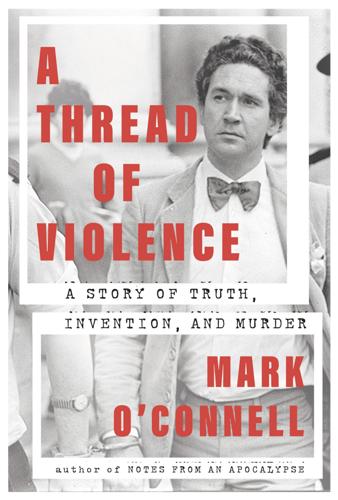
A Thread of Violence: A Story of Truth, Invention, and Murder
by
Mark O'Connell
Published 27 Jun 2023
My frustrated search for Macarthur became conflated, in my mind, with the experience of walking the streets of Dublin during the lockdown, which was among the strictest and longest of any place in the world. Everything was shut. Dublin seemed to me to be a labyrinth composed entirely of dead ends. The whole city felt like a vast Potemkin village, as though its former vitality and noise and humor had been an illusion, and the streets and the buildings were now revealed as an elaborate facade. It was somehow hard to believe any of it had ever been real. * * * « I started making a point of telling people, whenever it was even remotely appropriate, that I was hoping to write about Macarthur, on the principle that the more people I spoke to about it, the more likely it would be that someone would tell me that they knew where I could find him.
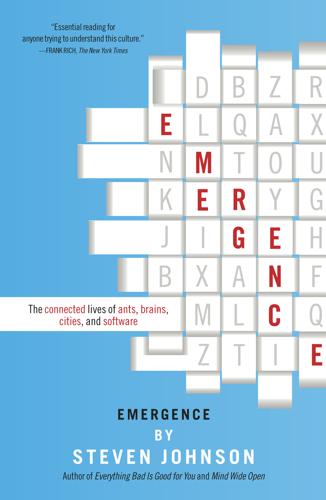
Emergence
by
Steven Johnson
As Steven Marcus puts it, in his history of the young Engels’s sojourn in Manchester, “The point to be taken is that this astonishing and outrageous arrangement cannot fully be understood as the result of a plot, or even a deliberate design, although those in whose interests it works also control it. It is indeed too huge and too complex a state of organized affairs ever to have been thought up in advance, to have preexisted as an idea.” Those broad, glittering avenues, in other words, suggest a Potemkin village without a Potemkin. That mix of order and anarchy is what we now call emergent behavior. Urban critics since Lewis Mumford and Jane Jacobs have known that cities have lives of their own, with neighborhoods clustering into place without any Robert Moses figure dictating the plan from above. But that understanding has entered the intellectual mainstream only in recent years—when Engels paced those Manchester streets in the 1840s, he was left groping blindly, trying to find a culprit for the city’s fiendish organization, even as he acknowledged that the city was notoriously unplanned.
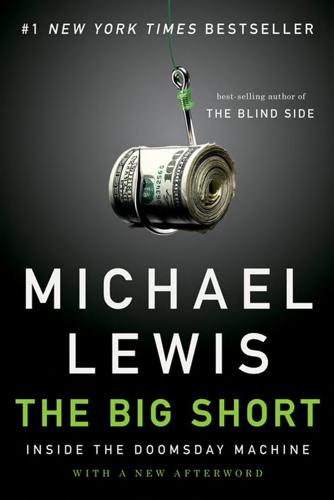
The Big Short: Inside the Doomsday Machine
by
Michael Lewis
Published 1 Nov 2009
When gold had been trading around $650 an ounce for the past two years, an option to buy it for $2,000 an ounce anytime during the next ten years might well be badly underpriced. The longer-term the option, the sillier the results generated by the Black-Scholes option pricing model, and the greater the opportunity for people who didn't use it. Oddly, it was Ben, the least personally conventional of the three, who had the Potemkin-village effect of making Cornwall Capital appear to outsiders to be a conventional institutional money manager. He knew his way around Wall Street trading floors and so also knew the extent to which Charlie and Jamie were being penalized for being perceived by the big Wall Street firms as a not terribly serious investor or, as Ben put it, "a garage band hedge fund."

The Age of Stagnation: Why Perpetual Growth Is Unattainable and the Global Economy Is in Peril
by
Satyajit Das
Published 9 Feb 2016
Online humorists manufactured other acronyms for attractive investment opportunities: one was ANARCHY (Albania, Nauru or North Korea, Afghanistan, Romania, Chad, Haiti, and Yemen). In early 2011, as North Africa and the Middle East were rent apart by political uprisings, an anonymous blogger wrote that emerging market investors were hunting in the MIST for CIVETS with only BRICS. Notwithstanding their long-term potential, emerging markets increasingly resembled Potemkin villages. In 2013, Goldman Sachs advised clients to reduce investments in these markets, arguing that the shift in global economic power had been overdramatized. Returns were less attractive and risks were higher than previously believed. In 2014, slumping, oversupplied real-estate markets prompted embattled Chinese developers to try different approaches to entice buyers.

The Black Nile: One Man's Amazing Journey Through Peace and War on the World's Longest River
by
Dan Morrison
Published 11 Aug 2010
The new New Gurna had the plastic look of a planned community. Stuccoed houses of maroon and beige sat end to end; their wooden-shuttered windows opened onto wide and empty paved streets, with a streetlight on every short block. Skinny saplings rose from the curb every forty feet. At first it looked like a Potemkin village; there was no one to be seen, no sign of life. But it was hot—why would there be? I walked down the middle of the street like a sunstroked gunfighter until I found Umar Khalifa sitting in the meager shade of his front porch. He rose slowly to my greeting and offered me a chair. It was a difficult move to the new village, he said.
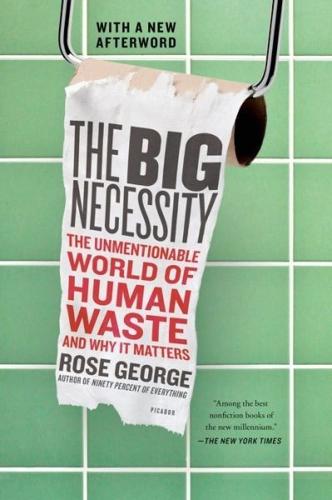
The Big Necessity: The Unmentionable World of Human Waste and Why It Matters
by
Rose George
Published 13 Oct 2008
“India is a democracy,” the expert says. “We have to ask, to plead, to persuade. It takes longer. It is harder. China can do things faster.” Also, China can pay. Households that buy a digester get a 1,200 yuan ($175) grant toward the total cost (usually about 3,000 yuan). It all sounds perfect. Even so, I am not persuaded by the Potemkin village of Mian Zhu. To reach the regional headquarters of the Chinese Women’s Federation, which are located in the pleasant city of Xi’an, one must first walk the length of a street of shops and barbers. The barber shops have barbering equipment and the added odd extra of overly made-up women smiling insistently at my companion, a Caucasian man.

Mindf*ck: Cambridge Analytica and the Plot to Break America
by
Christopher Wylie
Published 8 Oct 2019
On the day Bannon was scheduled to arrive, he said, “Okay, everyone, we’re working out of our Cambridge office today!” And we all packed up to go out there and work. Nix also hired a handful of temps and several scantily clad young women to staff the would-be office for Bannon’s visit. The whole thing felt ludicrous. Gettleson and I messaged each other, sharing links about Potemkin villages, the fake Russian towns set up in old tsarist Russia to woo Catherine the Great when she visited in 1783. We christened the office the Potemkin Site and made relentless fun of Nix for coming up with such a stupid idea. But when I walked around the fake office with Bannon, two months after I first met him in a Cambridge hotel, I could see the light in his eyes.
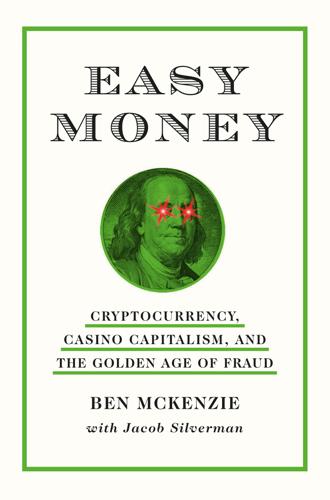
Easy Money: Cryptocurrency, Casino Capitalism, and the Golden Age of Fraud
by
Ben McKenzie
and
Jacob Silverman
Published 17 Jul 2023
If you ignored the formal hysterics and instead talked to regular folks milling about the conference, Bitcoin Miami sometimes felt like just another trade show. Big and energetic, full of boozy salesmen talking about how Bitcoin had changed their lives, with sponsorships adorning every surface, it was a Potemkin village of American consumerism and gambling addiction masquerading, in typically humble crypto fashion, as the future of the entire financial system. Eight-dollar Budweisers were offered for sale underneath the fifty-foot-tall Bitcoin volcano that burped out steam with all the grandeur of a high school science fair project.
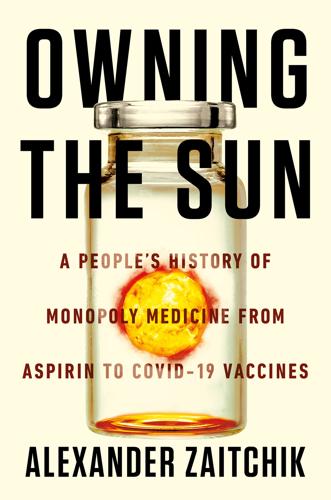
Owning the Sun
by
Alexander Zaitchik
Published 7 Jan 2022
At the CEPI launch at Davos in 2017, much was made about the initiative’s pricing pledge to hold partner companies accountable to the social values and mission of the initiative. After the media spotlight went dark, the companies decided the language went too far. CEPI dutifully watered the language down to a see-through gruel. Gates’s use of contractual Potemkin villages to obscure his commitment to monopoly raises the question of whose interests are being served, and how. Industry understands well that the details and outcomes of these access pledges get less attention than the fact they exist at all. As long as they and the organizations touting them exist, they serve to run effective interference for an industry that would otherwise be mute in the face of calls for more radical reforms to address the systemic failure that make access pledges necessary in the first place.
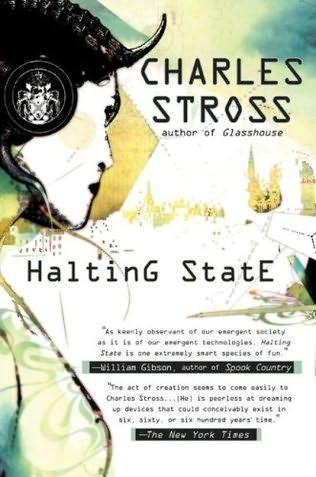
Halting State
by
Charles Stross
Published 9 Jul 2011
You stand up and hold the door for her, and at the hotel she makes her awkward good-byes and strides through the door. Then the whole thing comes crashing down on your shoulders like a suit woven from slabs of slate. Jesus fuck. The panicky urge to phone Sophie is sudden and nearly irresistible—but then, what if you’re wrong? You don’t want to tear holes in the Potemkin village of her reality. So you decide to play games instead. It’s zero dark o’clock and you’re coiled up on the futon in your living room like a basket case, goggles glued to your face by a mixture of sweat and determination. Your hands are twitching and spazzing from side to side, and you’re muttering under your breath like an old alkie communing with his invisible pink proboscidean.

Europe old and new: transnationalism, belonging, xenophobia
by
Ray Taras
Published 15 Dec 2009
Starkly put, while the west was embracing the idealism of unification after World War II, the east was confronting the harsh reality of Soviet hegemony. As the west constructed ways to integrate national economies, laws, and politics, the east had all autonomy snuffed out as Sovietization created a Potemkin village of contrived unity. Some political observers, in both the east and the west, held that these two rigid rival blocs did not amount to very much. French philosopher Étienne Balibar referred to the geopolitical division as a “phantom,” an “illusory Europe, the Europe of contradictory illusions maintained since 1920, and most particularly since 1945, by the very way that each of the two ‘blocs’ laid exclusive claim to the idea of Europe in its confrontation with the other.”22 External stimuli have profoundly affected the course of European integration.

The Cold War: A New History
by
John Lewis Gaddis
Published 1 Jan 2005
He held court for leading capitalists while sitting under a Picasso in a New York town house; he visited—and purported to be shocked by what he saw there—a Hollywood soundstage; he pouted over being denied the opportunity, for security reasons, to visit Disneyland; he got into a shouting match with the mayor of Los Angeles; he inspected corn on an Iowa farm; and he discussed war and peace with Eisenhower at Camp David—after being assured that an invitation to this dacha was an honor and not an insult.47 No substantive agreements came out of Khrushchev’s meetings with Eisenhower, but the trip did confirm that the Soviet Union had a new kind of leader, very unlike Stalin. Whether that made him more or less dangerous remained to be seen. IX. POTEMKIN VILLAGES work as long as no one peeks behind the façade. The only way for the United States and its allies to do that in Stalin’s day had been to send reconnaissance planes along the borders of the Soviet Union, or to release balloons with cameras to drift over it, or to infiltrate spies into it. None of these measures worked: the planes got shot at and sometimes shot down, the balloons got blown in the wrong direction, and the spies got arrested, imprisoned, and often executed because a Soviet agent, Kim Philby, happened to be the British liaison officer with the American Central Intelligence Agency.48 Stalin’s U.S.S.R. remained a closed society, opaque to anyone from the outside who tried to see into it.

Priceless: The Myth of Fair Value (And How to Take Advantage of It)
by
William Poundstone
Published 1 Jan 2010
The illusion of an authentic supply-and-demand market for such things is aided and abetted by the Robb Report and the celebrity press. Eva Longoria was photographed carrying a Coach “Miranda” bag in hot blue python skin! Whether she paid list for it is beside the point. Even in the best economic times, luxury stores are Potemkin villages, existing to convince aspiring materialists of a world richer, more spendthrift than it actually is. Marketing consultant Dan Hill of Sensory Logic said that successful stores use high-priced items to create “a mixture of anger and happiness.” Upper-middle-class consumers are angry because they can’t afford the gear featured in the store and worn by celebrities.
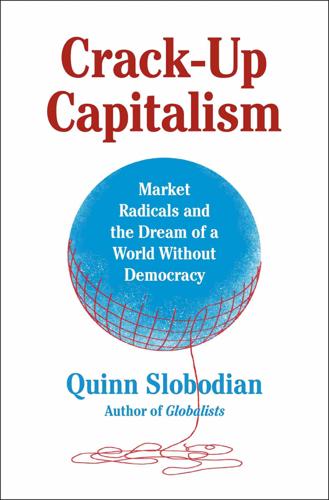
Crack-Up Capitalism: Market Radicals and the Dream of a World Without Democracy
by
Quinn Slobodian
Published 4 Apr 2023
One commentator called the enterprise zone a “dagger aimed at the heart of socialism.”25 Eleven enterprise zones were rolled out in Thatcher’s first budget.26 All were exempted from requirements for local planning approval, freed from local taxes for ten years, and provided capital allowances for commercial buildings.27 In the words of the historian Sam Wetherell, they “pierced holes in Britain’s national economic fabric, briefly allowing aggressive free market capitalism and a regulatory social democratic economy to live literally streets apart.”28 Despite the hype, the results were disappointing and showed little evidence of new investment.29 Business mostly shifted around, moving to zones to chase tax breaks while landlords jacked up rents to get a piece of the action and investors found ways to lower their tax bills.30 BUY A BUILDING FOR FREE, read one headline wooing investors into the zone.31 HOW TO BUILD A TAX HAVEN read another, and meant it like a good thing.32 Thatcher’s advisor Alan Walters (another Mont Pelerin Society member) said they’d like to turn Britain into “one big Enterprise Zone.”33 But if tax dollars were being drawn from one part of the economy to pay for the other, whom would that leave to pay the subsidies? The government’s own consultants conceded that “only some areas can get priority.”34 The zones seemed like window displays—Potemkin villages of the free market.35 But what if we took Butler’s idea of the “political animal” seriously? One geographer proposed that the zones were experiments in statecraft more than economics.36 The zone was not a non-plan at all. It was a plan of its own. The innovation was the way it short-circuited local government and handed control straight to developers.

Armed Humanitarians
by
Nathan Hodge
Published 1 Sep 2011
Colonel Spellmon, the commander of Task Force Warrior, flew up to Bamyan to smooth things over, but also warned the locals that if the Americans left, they would take all their money with them. The school visit in the Panjshir was not a mere photo opportunity intended to win over the Beltway elites with images of progress; the valley was not a Potemkin village. The Bagram outreach was a genuine effort to win friends and influence people in the communities around a vital base. Road projects were some measure of progress, even if they weren’t sustainable. But to replicate this success throughout Afghanistan would require a generation-long military commitment and a generation-long investment by the U.S. taxpayer.

Roads to Berlin
by
Cees Nooteboom
and
Laura Watkinson
Published 2 Jan 1990
I felt a sense of euphoria at all that activity, but also, I will admit, something more like a shiver of disquiet, because of the implications, because of the power that was in evidence here, which seemed such a contrast to Germany’s recent lamentations, as though that had all been some kind of masquerade, a theatrical gimmick to lull the rest of the world to sleep. If what I was witnessing here was not some kind of phantasm, a Potemkin village, then it must simply be exactly what my eyes could see: a vision of future power. Here, with the thunderous force of the pile driver, a page was being turned. No fewer than three pasts were being buried in this place; history was being dug into the soil of this magical landscape of orgiastic labor at the rate of a million images per second: trams, fashions, armies, bunkers, barriers, walls, the People’s Police, all of them disappearing beneath the foundations of the temples to the new powers.
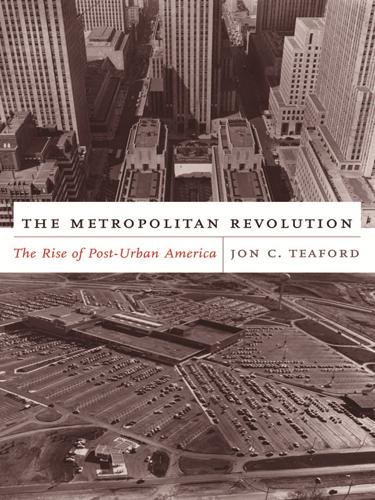
The Metropolitan Revolution: The Rise of Post-Urban America
by
Jon C. Teaford
Published 1 Jan 2006
According to him, suburbs were “fostering an unhealthy way of life,” and, echoing the screeds of the 1950s, he believed that suburbanization had produced “a bitter harvest of individual trauma, family distress, and civic decay.”19 Among the most vehement of the turn-of-the-century foes of suburban sprawl was James Howard Kunstler, who in a series of books leveled an unrelenting barrage of rhetoric on the edgeless city. It was “depressing, brutal, ugly, unhealthy, and spiritually degrading,” a landscape of “jive-plastic commuter tract home wastelands, … Potemkin village shopping plazas with … vast parking lagoons,” and “Orwellian office parks featuring buildings sheathed in the same reflective glass as the sunglasses worn by chain-gang guards.” It was “destructive, wasteful, toxic,” a blight on the nation and a plague on its people.20 At the close of the century, Time magazine concluded with some exaggeration: “Everybody hates the drive time, the scuffed and dented banality, of overextended suburbs.”21 Whereas many of the earlier diatribes of the 1950s, 1960s, and 1970s had focused on the suburbs’ destructive impact on the central city, the attacks of the 1990s emphasized the edgeless city’s toll on the natural environment.
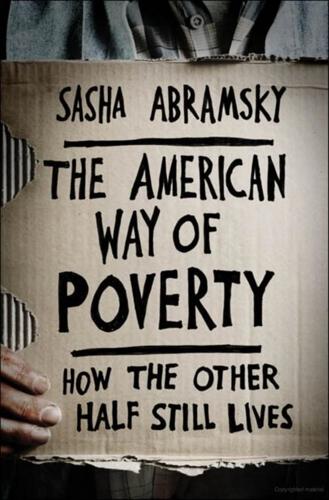
The American Way of Poverty: How the Other Half Still Lives
by
Sasha Abramsky
Published 15 Mar 2013
Community Voices Heard had documented stories of welfare recipients either doing make-work or literally having to sit hours a day doing nothing in a jobs center that is such in name only, just so that the Big Apple’s welfare bureaucracies could say that work requirements were being met. It was a façade worthy of the fabled Potemkin village creators. Similar situations abound around the country. In 2012, in California alone, according to Jessica Bartholow, 72,000 adults were being sanctioned with a loss of food stamps because they couldn’t find jobs. All of this makes for a double-whammy on the poorest and most difficult to employ section of the population.
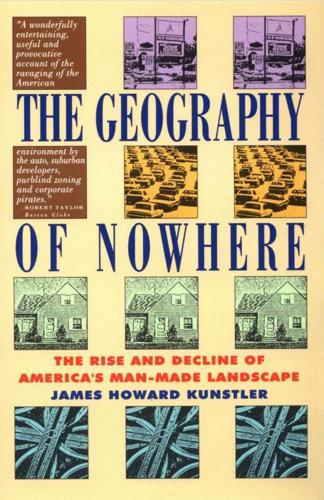
The Geography of Nowhere: The Rise and Decline of America's Man-Made Landscape
by
James Howard Kunstler
Published 31 May 1993
Meanwhile, the everyday landscape becomes more night marish and unmanageable each year. For many, the word development itself has become a dirty word. Eighty percent of everything ever built in America has been built in the last fifty years, and most of it is depressing, brutal, ugly, unhealthy, and spiritually degrading-the jive-plastic commuter tract home waste lands, the Potemkin village shopping plazas with their vast parking lagoons, the Lego-block hotel complexes, the "gourmet mansardic" junk-food joints, the Orwellian office "parks" featuring buildings sheathed in the same reflective glass as the sunglasses worn by chain gang guards, the particle-board garden apartments rising up in every meadow and cornfield, the freeway loops around every big and little city with their clusters of discount merchandise marts, the whole destruc tive, wasteful, toxic, agoraphobia-inducing spectacle that politicians proudly call "growth. " The newspaper headlines may shout about global warming, extinc tions of living species, the devastation of rain forests, and other world wide catastrophes, but Americans evince a striking complacency when it comes to their everyday environment and the growing calamity that it represents.

Siege: Trump Under Fire
by
Michael Wolff
Published 3 Jun 2019
Totally fine. It was the world around him that was toxic, cruel, evil, obsessed, full of lies. Indeed, the consensus was that Trump did not recognize that anything here was beyond the normal course of business, either in his marriage or, more generally, in his personal life. His marriage might be a Potemkin village, but that’s what it was supposed to be. That was the arrangement! This was a perverse sort of logic. There was no marriage—not, at least, that anyone had ever seen. So how could there be a problem with the marriage? Here, to various onlookers, was the distinction upon which many of their own careers and futures depended.
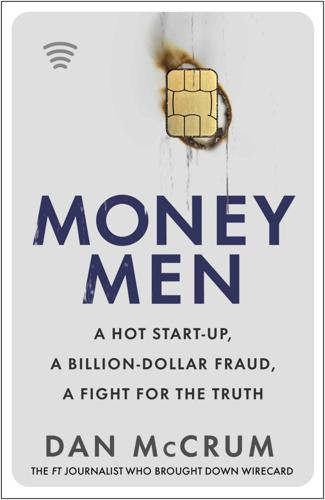
Money Men: A Hot Startup, a Billion Dollar Fraud, a Fight for the Truth
by
Dan McCrum
Published 15 Jun 2022
It was a damning piece of evidence. Both Wirecard and the payments company used this address as if it were the headquarters of a real business, one which owed Wirecard millions of euros. But there was no sign of it, it never paid its bills, and there was no money in its bank accounts. ConePay was a Potemkin village. Trying to keep her cool, Palma asked if she could take photos. ‘I don’t care, do whatever you like,’ the man said. As soon as she stepped back outside the gates Palma sent me the photos, so she didn’t have the only copies. It was 4 a.m. in London, too early to talk. The fixer suggested trying the barangay hall, the local government office where any company in the district would have to register for a permit to operate.
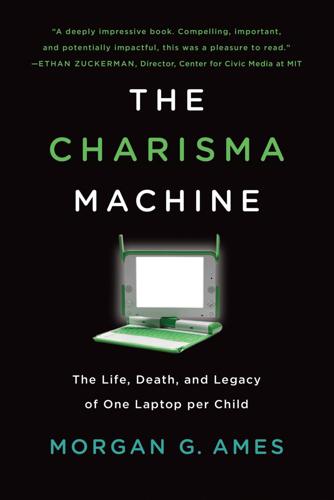
The Charisma Machine: The Life, Death, and Legacy of One Laptop Per Child
by
Morgan G. Ames
Published 19 Nov 2019
These promises attract the initial interest of funders, volunteers, or voters. Against the backdrop of other projects doing the same, a project that did not make such claims would have trouble garnering support. The Catch-22 of Charismatic Performances The ubiquity of these examples suggests that these charismatic performances are more than mere Potemkin villages—that charismatically performing development has a purpose beyond simply impressing funders with a façade of success. A more useful path for understanding the broader purpose of these kinds of performances is to consider them again within theories of performativity from science and technology studies—paying particular attention to the ways in which the representations a performance creates subsequently shape the practices of those involved in the performance.
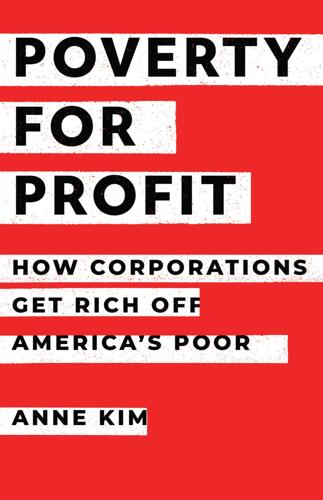
Poverty for Profit
by
Anne Kim
According to the Tax Policy Center, thirty-six countries already offer their citizens some sort of return-free filing.132 In a series of exposés, the nonprofit news organization Pro-Publica documented just how thoroughly H&R Block and Intuit have worked to stymie any IRS or congressional efforts to pursue this idea.133 Both companies have, for instance, advanced legislation effectively prohibiting the IRS from offering taxpayers its own free filing alternative.134 And to further forestall IRS competition, both firms have worked industriously to promote the “Free File Alliance,” an industry-led effort that purports to offer free filing options to low-and moderate-income filers.135 Under an agreement first negotiated with the IRS in 2002, the Alliance commits to offer a free electronic tax filing option for all filers earning less than about $66,000 a year.136 According to the Alliance’s website, up to 70 percent of taxpayers could qualify for this service. The Alliance has, however, proved to be something of a Potemkin village—far more show than substance. In a 2020 audit, the IRS’s inspector general (IG) found that “only 2.5 million (2.4 percent) of the 104 million eligible taxpayers obtained a free return filing through the [Free File Alliance]” because of “complexity, confusion and lack of taxpayer awareness.”137 Moreover, the IG concluded, “more than 14 million taxpayers met the Free File Program criteria and may have paid a fee to e-file their Federal tax return.”
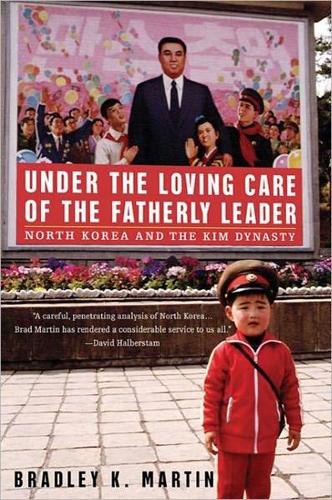
Under the Loving Care of the Fatherly Leader: North Korea and the Kim Dynasty
by
Bradley K. Martin
Published 14 Oct 2004
. *** Whether visiting factories and farms or simply riding for mile after mile through broad streets lined “with trees and neat, multi-story apartment buildings in the park-studded capital of Pyongyang, I found the contrast between what was being said by outsiders and what I was seeing with my own eyes very sharp indeed. I was not the first visitor to wonder whether the authorities had arranged for visitors to see only showplaces, built—like a Potemkin village of Czarist Russia—to disguise underlying poverty and impress the credulous. My chance to take an unguided tour came after I realized that my hosts never scheduled appointments for me from roughly one o’clock in the afternoon until three or four. Instead, they kept urging me to take a rest in my room.
…
So I cannot tell whether I lived a luxurious life or not.” He added, “As to the issue of hunger, as well, I really do not know about it.” Tanaka’s comments ring a bell. There is evidence that Kim Il-sung’s vastly more splendid isolation in real palaces—combined with the efforts of underlings to report only good news and expose him to Potemkin villages that oozed fake prosperity—kept the Great Leader from realizing the full extent of his people’s plight. There is other evidence, however, that even on some occasions when Kim did know what was really happening he was having such a good time as Great Leader that he didn’t want to inconvenience himself in order to deal with such mundane matters.
…
See also Demilitarized Zone (DMZ); Pueblo incident pellagra, 103, 469 Peng Dehuai, Gen., 92 Perry, William, 635, 637, 647 ping-pong diplomacy, 139–140 Pochonbo, battle of, 39–40, 212, 214 population, 139 relocation, mass, 112, 232, 294, 408, 544, 626–627 police function, 6 manpower, 262 See also police state; Public Security; State Security police state, 60, 89, 262 intensification under Kim Jong-il, 397 See also Public Security; punishment; purges; State Security; surveillance political offenders. See punishment; purges; surveillance post–Korean War period (1950s), 93–119 Potemkin villages, 178, 499, 518–519 power, electric, 177 Kim Il-sung’s priority use of, 499–500 Pyongyang system modernized, 662 shortage, 295, 329, 345, 503, 638 and coal mines, 559, 643 easing, 663 propaganda. See culture; indoctrination; Kim Il-sung: personality cult of; Kim Jong-il: personality cult of; news media; subversion, of North Korea; subversion, of South Korea prostitution, 188, 201, 458, 590, 623 protest, 344–345, 441, 543, 545–547, 550, 611 Public Security (police), 262, 263–264, 269, 291 Pueblo incident, 128–133, 135, 534 punishment, 290–304 banishment (internal exile), 290, 293, 294, 298, 301–302, 557–558, 614–615, 616–628 without change in social class, 627 commitment to mental institution as, 589 demotion, for remaining dry-eyed after Kim Il-sung’s death, 508 detention centers, 290–291 execution, 290 of accused spy for South Korea, 549 of agriculture minister, 575, 624 of camp-inmate family for escape try, 609 of coup plotters, associates, 546 of defector attempting to rescue family members, 460 of exhumed corpse, ritual, 575 of father as little son watches, 301 of failed assassin, 695 for hearing gossip about Kim Jong-il’s private life, 687 of official’s wife, at drinking party, for criticizing Kim Jong-il, 287 of personality cult critics, 292 of political prison camp inmates, 299 public, suspended, 631 seen as alienating elite, 648 for sexual promiscuity, 201–202 of Southerners during Korean War, 89 of woman who told authorities she had slept with Kim Jong-il, 318 expulsion, from school or job, 290, 377, 429, 432, 574 house arrest, 293 political prisons and prison camps, 280, 290–291, 293–294, 302–304, 557–558, 560, 562–564, 615 “destroy three generations of a family,” 290, 572, 607, 609 experiments on prisoners, 604 families of spies who fail sent to, 541 guards’ testimony, 604–610 inmates’ testimony, 298–300, 596–600 leniency to families of offenders, new policies, 416, 572, 617, 631 prisoners released (1984–86), 589 production in, 562, 615 short stature of inmates, 609 slow-death camps, 291, 572, 604 uniforms worn in, 562, 609 prison, women’s, 616 prisons, ordinary, 291, 329–330, 562, 611–613 reformatories (labor drill units), 291 revolutionary work classes, 574, 580 purges, 293 of artists and literary people, 171, 240–243 military 1969–1970, as succession maneuver, 277 1992, of military dissidents, 546, 548, 673 in 1950s, 94–96, 106–107, 109–111, 292 thought examination committees in, 110 Pyongyang capture of, 80 construction in, 119, 295 controls on population and entry, 233, 294, 344, 405, 626–627 priority in distribution of goods, services, electricity, 449, 499–500, 576 rebuilding of, after Korean War, 93, 96 retaking of, 83 showcase role, 295 transportation in, 2, 177, 494 radio, external broadcasts pending congressional bills regarding, 677–678 receivers capable of tuning in, 6, 368, 379, 423–424, 431–432, 495, 496, 522, 526, 601 (see also subversion, of North Korea: balloon drops) Radio Free Asia, Korean-language service, 297, 379, 385, 392, 401, 407, 454, 455, 496, 522, 526, 601 South Korean, 310, 368, 385, 390, 406–407, 420, 422, 424, 432, 570, 584, 600–602 Voice of America, 368, 495–496 Rangoon bombing, 323 Reagan, Ronald, 152–153 regime change Gang of Four scenario, 492–493 South Korea’s caution, 672 U.S. advocates of, 86, 672–674, 677–678 See also coup d’état regime collapse, prospects, 433, 440, 449, 454, 457, 478, 494, 503, 522, 553–555, 626, 635, 659, 672, 683–684 religion belief as political offense, 292, 599 See also Buddhism, Christianity Republic of Korea (South Korea, ROK) formation of, 62 Respected Mother (omonim), 701–703 revisionism, Soviet and Eastern European, 121, 474, 574, 652 See also co-existence, peaceful; Stalinism: de-Stalinization Rhee Syngman Connally remarks abhorred by, 67 economic development lagging under, 100 land reform postponement sought by, 91 northward invasion hopes of, 62, 65–66, 79, 87, 99 overthrown, 104 Republic of Korea proclaimed by, 61 senility, 114 trusteeship opposed by, 54 Ridgway, Gen.
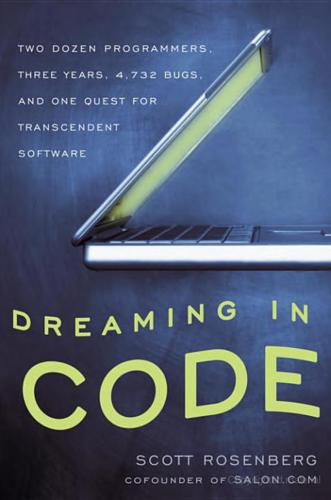
Dreaming in Code: Two Dozen Programmers, Three Years, 4,732 Bugs, and One Quest for Transcendent Software
by
Scott Rosenberg
Published 2 Jan 2006
“While it was perhaps natural and inevitable that languages like Fortran and its successors should have developed out of the concept of the von Neumann computer as they did, the fact that such languages have dominated our thinking for twenty years is unfortunate. It is unfortunate because their long-standing familiarity will make it hard for us to understand and adopt new programming styles which one day will offer far greater intellectual and computational power.” Is the entire edifice of software engineering as we know it today a Potemkin village facade? Do we need to start over from the ground up? Today, one vocal advocate of this view is Jaron Lanier, the computer scientist whose dreadlocked portrait was briefly imprinted on the popular imagination as the guru of virtual reality during that technology’s brief craze in the early 1990s.
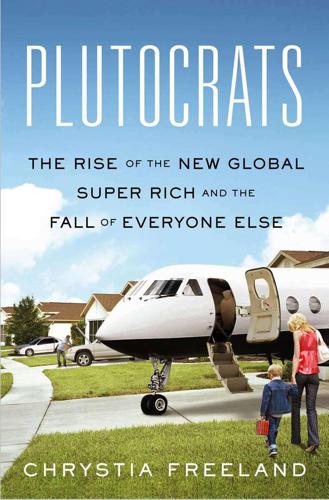
Plutocrats: The Rise of the New Global Super-Rich and the Fall of Everyone Else
by
Chrystia Freeland
Published 11 Oct 2012
RED OLIGARCHS On March 5, 2012, the three thousand members of the National People’s Congress gathered in Beijing for their annual ten-day meeting. The National People’s Congress is nominally the highest governmental body in China. In practice, real power resides with the twenty-five-member Politburo and its Standing Committee. The National People’s Congress partly serves as a political Potemkin village, a rubber-stamp legislature whose role is to create a pretense of popular representation in what is an authoritarian system, just as the “elections,” with their 99 percent majorities, did in the Soviet era. But the National People’s Congress isn’t purely ornamental. The NPC’s March meeting is held every year alongside the annual Chinese People’s Political Consultative Conference.
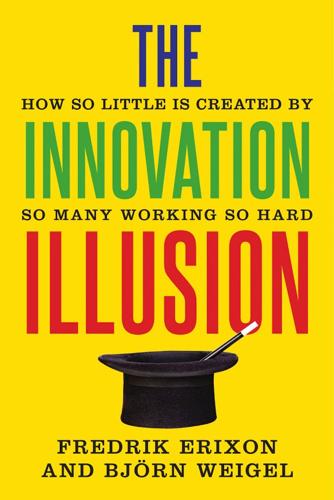
The Innovation Illusion: How So Little Is Created by So Many Working So Hard
by
Fredrik Erixon
and
Bjorn Weigel
Published 3 Oct 2016
They dispute the evidence and data about weak economic dynamism by claiming that current methodologies to measure the growth of productivity, prices, and GDP fail to capture technological shifts generally and the current innovation spurt specifically. Consequently, the real economy is driven by innovation more than is suggested by economic data. It is statistics, not the real economy, which show the innovation illusion. There is a problem with the map, not the territory. National accounts are rather like Potemkin villages: they hide the reality. This argument comes in three different instalments. First, recent economic data cover a period when cyclical effects have hidden the structural shifts taking place in the Western economy. Second, there is a growing disconnect between recorded data in national accounts and the real improvements of products created by new technology.

Madoff: The Final Word
by
Richard Behar
Published 9 Jul 2024
To grasp the enormity of his “accomplishment,” you need to envision the cosmos that Bernie had created. It was like an elaborate Hollywood set, propped up with poles, behind which stood… nothing. “The first term that came to me to describe this is that I was living in the Matrix,” says a top trader who worked on BLMIS’s prop-trading side. “But you can also view it a little bit like a Potemkin village. Everyone idolized Bernie until December 10 [the day before he was arrested]. As my wife said, it was a death. We all cried continuously for the first week. Obviously, he was brilliant at constructing legitimate businesses to provide cover. He manipulated everybody.” Bernie’s Ponzi started with what’s known in the law enforcement community as an affinity crime—which, in his case, meant robbing fellow American Jews before moving on to engulf other investors around the world like a financial tsunami.
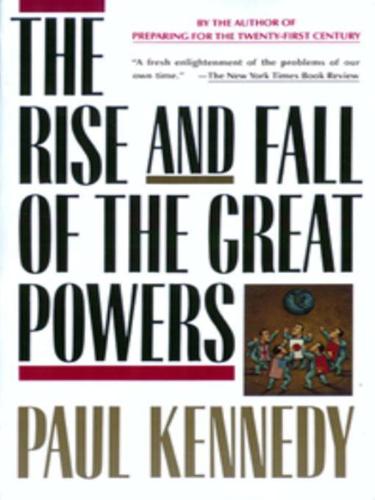
The Rise and Fall of the Great Powers: Economic Change and Military Conflict From 1500 to 2000
by
Paul Kennedy
Published 15 Jan 1989
Finally, no assessment of Russia’s overall capacities in this period can avoid some comments upon the regime itself. Although certain foreign conservatives admired its autocratic and centralized system, arguing that it gave a greater consistency and strength to national policies than the western democracies were capable of, a closer examination would have revealed innumerable flaws. Czar Nicholas II was a Potemkin village in person, simple-minded, reclusive, disliking difficult decisions, and blindly convinced of his sacred relationship with the Russian people (in whose real welfare, of course, he showed no interest). The methods of governmental decision-making at the higher levels were enough to give “Byzantinism” a bad name: irresponsible grand dukes, the emotionally unbalanced empress, reactionary generals, and corrupt speculators, outweighing by far the number of diligent and intelligent ministers whom the regime could recruit and who, only occasionally, could reach the czar’s ear.
…
Whether one considers the rapid growth of Russian land- and sea-based strategic missile systems, the thousands of aircraft and tens of thousands of main battle tanks, the extraordinary developments in the surface navy and in the submarine fleet, the specialist activities (airborne and amphibious warfare units, chemical warfare, intelligence and “disinformation” activities), the end result is impressive. It may or may not have cost as much in real terms as the Pentagon’s own allocations; but it undoubtedly gives the USSR a range of military capabilities which only the rival American superpower possesses. This is not a twentieth-century military Potemkin village, ready to collapse at the first serious testing.161 On the other hand, the Soviet war machine also has its own weaknesses and problems, and certainly ought not to be presented as an omnipotent force, able to execute with consummate efficiency all of the possible military operations which the Kremlin might require of it.

Three Felonies a Day: How the Feds Target the Innocent
by
Harvey Silverglate
Published 6 Jun 2011
Professor Dershowitz has used this formulation on numerous occasions in his Harvard Law School classes. See Harvey A. Silverglate, “Ashcroft’s big con: False confessions, coerced pleas, show trials — the Justice Department’s reliance on Soviet-style tactics has turned the war on terror into a Potemkin village,” The Boston Phoenix, June 25, 2004, available at http://bostonphoenix.com/boston/news_features/top/features/ 17. three felonies a day 289 documents/03936976.asp. See also Paul Craig Roberts, “Fake Crimes,” Feb. 4, 2004, available at http://www.lewrockwell.com/roberts/roberts29.html. 18.

Braiding Sweetgrass
by
Robin Wall Kimmerer
I want to cup them like a small warm animal in my hands and shelter them from the onslaught of their antithesis. But I know they are stronger than this. It’s not the Honorable Harvest that is the aberration, though—it is this marketplace. As leeks cannot survive in a cutover forest, the Honorable Harvest cannot survive in this habitat. We have constructed an artifice, a Potemkin village of an ecosystem where we perpetrate the illusion that the things we consume have just fallen off the back of Santa’s sleigh, not been ripped from the earth. The illusion enables us to imagine that the only choices we have are between brands. Back home I wash away the last bits of black soil and trim the long white roots.
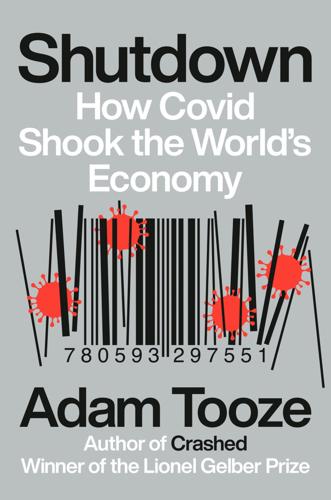
Shutdown: How COVID Shook the World's Economy
by
Adam Tooze
Published 15 Nov 2021
At the global level we have organizations like the World Health Organization (WHO), in which thousands of highly professional, motivated, and well-intentioned individuals from all over the world fight the good fight. But as a global health agency for a rapidly developing globe inhabited by 7.8 billion people, the WHO is a Potemkin village. For the two years 2018–2019, the WHO’s approved program budget was no more than $4.4 billion, less than that of a single big city hospital.18 The WHO’s funding is cobbled together from a hodgepodge of sources, including national governments, private charities, the World Bank, and big pharma.
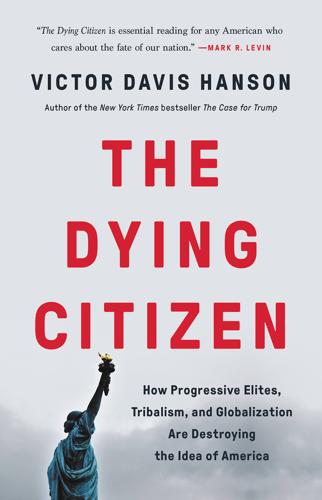
The Dying Citizen: How Progressive Elites, Tribalism, and Globalization Are Destroying the Idea of America
by
Victor Davis Hanson
Published 15 Nov 2021
or “OK,” he did so because he heard those bits of English in movies, listened to them on the radio or the internet, or met thousands of tourists who talked like that—and concluded a smidgeon of English exuded a global hipness and commonality with famous, rich, and enviable celebrities. The English language is becoming Americanized and in turn globalized into a common vernacular patois with its own particular grammar and syntax.8 Yet all that is a mere facade, a Potemkin village. Despite the prodigious efforts of Western intellectuals, the media, and politicians, globalization has not yet achieved, and probably never will, global political or moral consensus—much less harmony about constitutional government, human rights, the fair enforcement of international commercial agreements, or common moral or democratic values.

Apocalypse Never: Why Environmental Alarmism Hurts Us All
by
Michael Shellenberger
Published 28 Jun 2020
Commoner had come to fame in the early 1950s when he helped the Nobel Prize–winning chemist and peace activist Linus Pauling to circulate a petition calling for a moratorium on weapons testing. Their argument was that the testing risked contaminating the public.70 Commoner viewed nuclear power plants as a “non-warlike excuse for continuing the development of nuclear energy . . . a kind of political Potëmkin Village.” Nuclear energy, Commoner argued, was constructed in order to justify President Eisenhower’s nuclear arms testing. “It’s the most expensive charade in history,” Commoner argued.71 The Sierra Club board of directors was taken aback by Pesonen’s proposal. “Don’t you dare mention public safety,” one of them warned Pesonen.
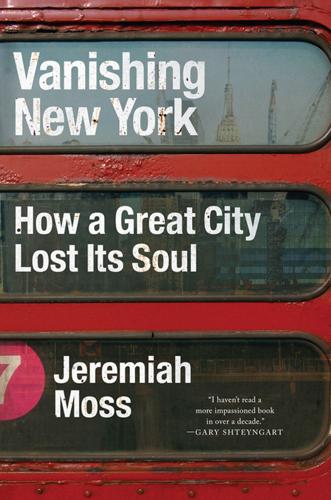
Vanishing New York
by
Jeremiah Moss
Published 19 May 2017
So the new city has been departicularized, filled with copies of copies and featureless façades, attracting people in search of a curated and controlled theme-park experience, all for the purpose of commodifying the city. Disneyfied and assembly-lined, twenty-first-century New York is becoming a pale imitation of its former self, a Potemkin village of what a city used to be. It is not alone. A symptom of globalized capitalism, mass tourism’s homogenizing force is a worldwide pandemic—and it has stimulated a global backlash. “A rapacious tourist monoculture threatens Venice’s existence,” Italian art historian Salvatore Settis argued in the Times in 2016, “decimating the historic city and turning the Queen of the Adriatic into a Disneyfied shopping mall.”
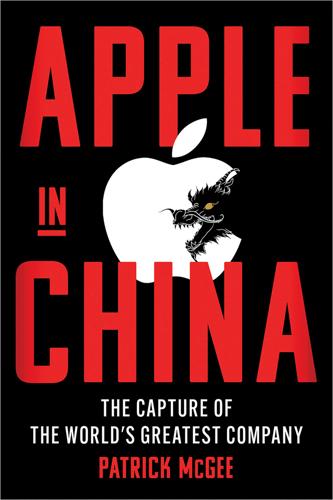
Apple in China: The Capture of the World's Greatest Company
by
Patrick McGee
Published 13 May 2025
Men were wearing suits with the price tag still on the cuffs, signaling that wealth was becoming a badge of honor. Guthrie rode around the city on a one-speed Flying Pigeon, a Chinese bicycle that in the Mao era served as a symbol of an egalitarian society. Now it was being used to study how people got rich. When Nixon and Kissinger had visited China two decades earlier, they were given Potemkin village–style tours—visits to beautiful factories that didn’t represent the country. Guthrie sought to strenuously avoid that. He’d set out to interview each manager in a structured way, asking the same questions to all. The idea was to capture qualitative, on-the-ground research, but with a big enough sample that it would achieve statistical significance.
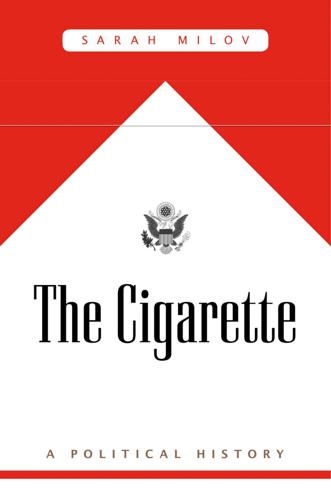
The Cigarette: A Political History
by
Sarah Milov
Published 1 Oct 2019
While Iowans’ eyes may have been set on the “Soviet Russians” in their midst, the Times reporter was transfixed by the shiny tractors and new farm equipment. In the reporter’s words, “the ordinary Iowa farmer … has a minimum of two new cars and they are usually brand-new Buicks or Oldsmobiles or Cadillacs.” Iowa was the anti-Potemkin village. Urban newspapermen argued that farmer success was too good to be true, not because it was fake, but because it was real—and that taxpayers kept farmers “living in clover and Cadillacs.”91 As fewer and fewer Americans were living on farms, the prospects for gaining the sympathies of the American people seemed to dwindle.
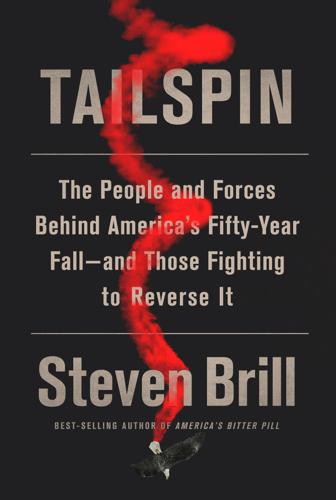
Tailspin: The People and Forces Behind America's Fifty-Year Fall--And Those Fighting to Reverse It
by
Steven Brill
Published 28 May 2018
For years, the Democrats didn’t pay much attention to the Gingrich and friends television show because, even though the Republicans frequently used sound bites of their best performances to promote themselves, C-Span’s actual viewership was minimal. However, Gingrich’s C-Span antics reached such a fever pitch in 1984 that Democratic speaker Thomas “Tip” O’Neill decided to reveal the Potemkin Village nature of the House “debate” by ordering the cameras to show the empty chamber. O’Neill then took the floor to accuse Gingrich of impugning the integrity of members of the House. The dramatic confrontation made headlines, with a video clip broadcast on the evening news. All of this was happening at a time when President Reagan and O’Neill, a Massachusetts liberal, were famously cutting deals, with the help of Gingrich’s putative House boss, Republican minority leader Bob Michel.

Amazon Unbound: Jeff Bezos and the Invention of a Global Empire
by
Brad Stone
Published 10 May 2021
Now Bezos was spending part of his Amazon workday trying to understand the problems at Blue Origin. Over the course of a series of lunches, some which lasted as long as two hours, Blue executives tried to enlighten their owner. They complained about poor internal communication, time-consuming meetings, and inexplicable spending decisions. One engineer described the company as a Potemkin village—its dysfunctional culture concealed beneath an industrious façade. Another executive threatened to quit if problems weren’t promptly addressed. Many of the Blue employees who lunched with Bezos were circumspect when it came to the root of these problems. They danced around the way Bezos constrained the company’s headcount while expanding its ambitions.
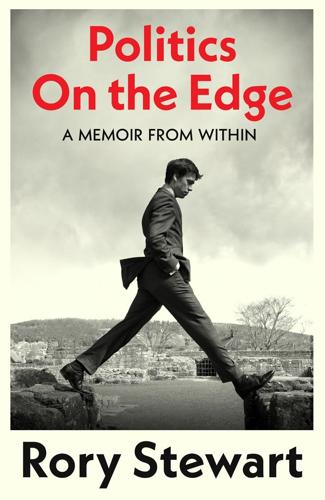
Politics on the Edge: The Instant #1 Sunday Times Bestseller From the Host of Hit Podcast the Rest Is Politics
by
Rory Stewart
Published 13 Sep 2023
If we could do less than we pretended, we could do more than we feared. A hand shot up from an immaculate white cuff, and a handsome diplomat in a beautiful suit asked, ‘Minister, are you not aware that we have been asked to write this new style of telegram by the Foreign Secretary? Do you not feel that your entire criticism, of Potemkin villages and charade foreign policies, would be better addressed to Boris Johnson?’ Thirty other ambassadors laughed. Discomfited, I ploughed on. I said it was vital to preserve the tradition of telling uncomfortable truths in diplomatic telegrams: to admit where we didn’t have influence, to avoid taking credit for others’ actions.
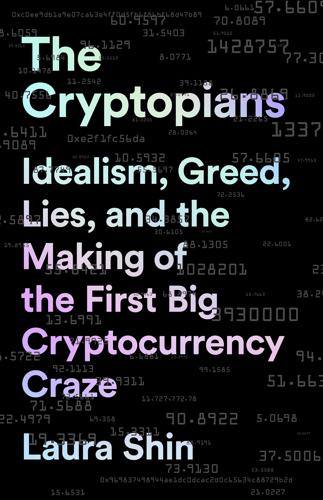
The Cryptopians: Idealism, Greed, Lies, and the Making of the First Big Cryptocurrency Craze
by
Laura Shin
Published 22 Feb 2022
An executive at another firm who had attended ConsenSys’s Davos events told this former staffer that ConsenSys seemed like a “smoke-and-mirrors company” that talked about decentralization but couldn’t point to anything concrete it was doing. (Joe called these statements “generally wrong” and, though he didn’t know the source of these comments, said they must be from people who were unsuccessful at ConsenSys or didn’t understand it from their distance.) A different former employee said, “The whole of ConsenSys felt like a Potemkin village where there were facades being put up to make it look like there was something going on. It’s super hard to prove something like that. Either something’s really being done incompetently or it’s being done on purpose.” ConsenSys lawyer Matt Corva responded, “We publish the most widely used tools, infrastructure, and wallet for the most widely used blockchain on earth, with millions of users and exponentially successful investments.
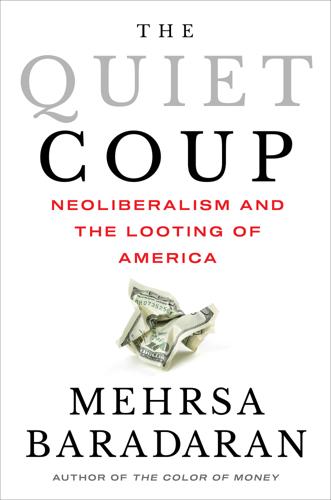
The Quiet Coup: Neoliberalism and the Looting of America
by
Mehrsa Baradaran
Published 7 May 2024
The “heart of the economic approach,” summarized Gary Becker, was a mix of beliefs, or a set of “combined assumptions of maximizing behavior, market equilibrium, and stable preferences, used relentlessly and unflinchingly.”6 Venturing another theory and waving away what did not fit into the model, Buchanan added another structure to neoliberalism’s Potemkin village. Like the theories on which it relied, public choice was an argument in support of a predetermined outcome, not a description of how the world actually worked. All one had to do was to press on any single assumption the authors made, with reference to practically any era in history, any experiment on a group of real humans, or any rigorous inquiry at all.

The Oil and the Glory: The Pursuit of Empire and Fortune on the Caspian Sea
by
Steve Levine
Published 23 Oct 2007
Crews from a workforce of fourteen thousand had been frantic to dress up the blocks of drab Soviet-era shops and apartments that the president’s motorcade would pass as it moved along Respublikansky Prospekt. And so they had slapped thousands of yards of white and brown vinyl onto the front and sides of more than a hundred buildings, giving them a halfway cheerful look. Nobody bothered disguising the back walls, since they would be out of sight. The overall effect was that of a Potemkin village. There was one other problem—the city’s name. The word akmola means “white grave,” which prompted much mocking from Kazakhs and foreigners scornful of their president’s grandiose venture. Nazarbayev, stung by the jibes, promptly ordered that the city be renamed Astana, which simply means “capital.”

Bernie Madoff, the Wizard of Lies: Inside the Infamous $65 Billion Swindle
by
Diana B. Henriques
Published 1 Aug 2011
In time, he even ordered the creation of a software program that made it look to an observer as if a trader at one computer terminal were buying or selling for an investor’s account, when in fact the “trader” was merely exchanging keystrokes with another staff member at a computer hidden in a room down the hall. This Potemkin village paper trail became so convincing that Madoff was able to fool dozens of insufficiently sceptical regulators and inadequately observant lawyers and accountants for years. Another consequence of the SEC’s breakup of the casual “friends and family” network run by Avellino & Bienes was that Madoff came to rely far more on those larger, more professionally marketed sources of cash known as hedge funds.

Riding Rockets: The Outrageous Tales of a Space Shuttle Astronaut
by
Mike Mullane
Published 24 Jan 2006
I would see Donna again, so I devoted my time to my mom and children. The kids were now old enough to make the beach house visit after being cleared by the flight surgeon. As I had been in previous launch good-byes, I was honest with them now about the risks. I didn’t talk up the danger, but neither did I paint a Potemkin village for them. SinceChallenger ’s loss I was even more determined to keep them informed. I had heard that one of the older children watchingChallenger ’s destruction from the LCC roof had screamed, “Daddy, you said this could never happen!” I wanted my children and mom to know it could happen and to be prepared as much as possible.
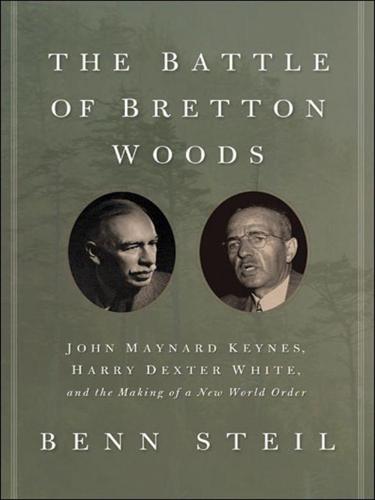
The Battle of Bretton Woods: John Maynard Keynes, Harry Dexter White, and the Making of a New World Order
by
Benn Steil
Published 14 May 2013
His five-volume history of the war contains a single reference to the great economist.66 The PM’s strategy throughout the war was to focus on surviving it. Central to that strategy was to cultivate Roosevelt and his personal emissaries (such as Hopkins), whom he sought relentlessly to entrance with his Potemkin village of Anglo-America. All else was distraction. Keynes, though he allowed his frustrations to bubble over in front of the Americans more often than did Churchill, nonetheless shared with the PM the tendency ultimately to ascribe kindly intentions to his negotiating counterparts, even when these were not manifest in their behavior.
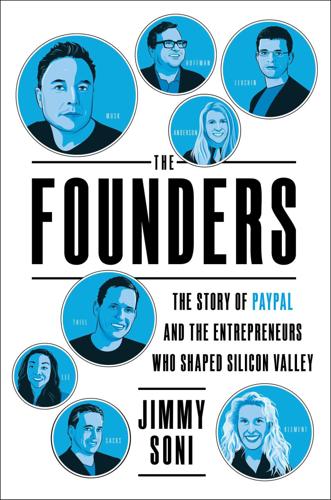
The Founders: The Story of Paypal and the Entrepreneurs Who Shaped Silicon Valley
by
Jimmy Soni
Published 22 Feb 2022
In mid-1999, he warned an interviewer from the University of Pennsylvania alumni magazine about a coming collapse. “Any change this profound is bound to set off speculative frenzy,” he said of the internet bubble, “and people need to do their homework, and not blindly buy into companies that aren’t well put together. There are a lot of Potemkin villages out there built on flimsy foundations, and many, many will fail.” Musk predicted a reckoning. “This is the longest peacetime expansion in history,” Musk said, “and for young people who’ve never really seen a serious recession—and anyone who’s studied history knows they happen—a downturn will be a rough experience.”
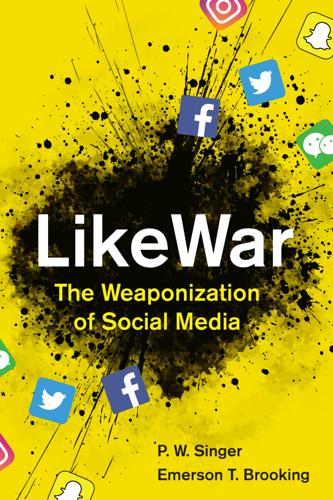
Likewar: The Weaponization of Social Media
by
Peter Warren Singer
and
Emerson T. Brooking
Published 15 Mar 2018
There are also more forceful methods of ensuring silence. Since Putin consolidated power in 1999, dozens of independent journalists have been killed under circumstances as suspicious as those that have befallen his political opponents. The outcome has been an illusion of free speech within a newfangled Potemkin village. “The Kremlin’s idea is to own all forms of political discourse, to not let any independent movements develop outside its walls,” writes Peter Pomerantsev, author of Nothing Is True and Everything Is Possible. “Moscow can feel like an oligarchy in the morning and a democracy in the afternoon, a monarchy for dinner and a totalitarian state by bedtime.”
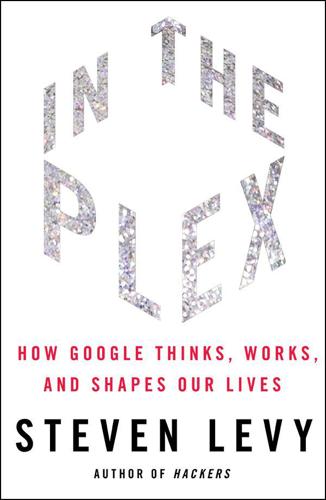
In the Plex: How Google Thinks, Works, and Shapes Our Lives
by
Steven Levy
Published 12 Apr 2011
But other times Google would identify behavior that it judged an attempt to exploit vulnerabilities in its ranking system and would adjust the system to shore up those weaknesses—relegating those using that method to the bottom of the results pile. Generally, the places that got such treatment had no business showing up in the upper reaches of results for popular keywords: they sneakily worked their way up by creating Potemkin villages full of “link farms” designed to pump up a PageRank. Nonetheless, companies whose sites were downgraded in that matter were often outraged. “It’s not like we’ve put all our eggs in one basket,” said the president of an SEO company called WebGuerrilla to CNET in October 2002, “it’s just that there’s no other basket.”
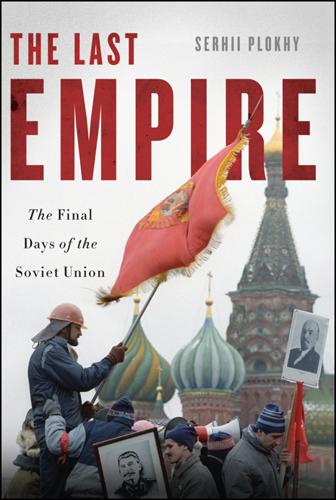
The Last Empire: The Final Days of the Soviet Union
by
Serhii Plokhy
Published 12 May 2014
The US president would then fly to Kyiv to see another rising star, the leader of Ukraine, the second-largest Soviet republic. Soviet power was no longer concentrated in the hands of one person and was not wielded in Moscow alone. It was becoming increasingly dispersed, and the program of the summit, which included meetings with republican leaders, underlined that reality. Bush would have to try to look past the Potemkin villages of the new Soviet political edifice to see the future. The president had had many opportunities to discuss these questions with his advisers. It was now time to judge the new Soviet reality for himself. His immediate question was how to help Gorbachev stay in power and continue the honeymoon in Soviet-American relations.

The Marshall Plan: Dawn of the Cold War
by
Benn Steil
Published 13 Feb 2018
Secretary of State George Marshall, Soviet Foreign Minister Vyacheslav Molotov, and French Foreign Minister Georges Bidault. * * * THREE * * * RUPTURE MARCH 9, 1947: MARSHALL’S C-54 arrived in Moscow from Berlin on a brisk, snowy afternoon. In preparation for the secretary’s motorcade, the Soviets had decked out the area around the embassy, creating “a virtual Potemkin village” to showcase the nation’s heroic economic recovery. The avenues gleamed, the garbage having been shunted into nearby alleys. The decision for Marshall to stay at Spaso House, the embassy residence, was wise, or fortunate; the refurbished Moskva Hotel, where his staff stayed, was bugged.1 George Catlett Marshall was the first American general given the five-star rank, and the first career soldier appointed secretary of state.
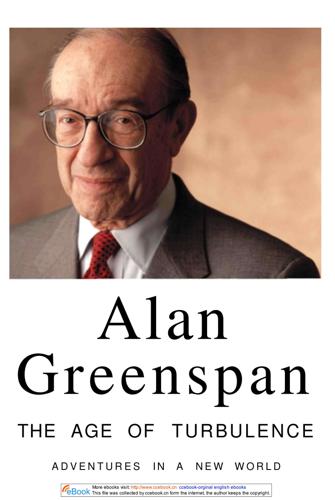
The Age of Turbulence: Adventures in a New World (Hardback) - Common
by
Alan Greenspan
Published 14 Jun 2007
Even after adjusting for the questionable quality of some of China's data, the results of the reforms that commenced in the late 1970s remain truly remarkable. One needs only to observe the vast changes in Beijing, Shanghai, and Shenzhen, and the lesser but still real changes in the rest of the country, to conclude that China is anything but a Potemkin village. In my experience, it has been the technocrats in the Chinese government—mostly in the central bank, the finance ministry, and, surprisingly, the regulatory agencies—who have pressed for market initiatives. Most of them, however, serve only in advisory capacities. The key policy de- 308 More ebooks visit: http://www.ccebook.cn ccebook-orginal english ebooks This file was collected by ccebook.cn form the internet, the author keeps the copyright.
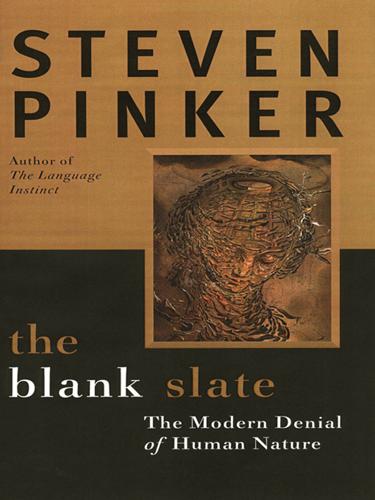
The Blank Slate: The Modern Denial of Human Nature
by
Steven Pinker
Published 1 Jan 2002
If we are just machines that let our genes make copies of themselves, if our joys and satisfactions are just biochemical events that will someday sputter out for good, if life was not created for a higher purpose and directed toward a noble goal, then why go on living? Life as we treasure it would be sham, a Potemkin village with only a façade of value and worth. The fear comes in two versions, religious and secular. A sophisticated version of the religious concern was formulated by Pope John Paul II in a 1996 address to the Pontifical Academy of Sciences, “Truth Cannot Contradict Truth.”1 The Pope acknowledged that Darwin’s theory of evolution is “more than just a hypothesis,” because converging discoveries in many independent fields, “neither sought nor fabricated,” argue in its favor.
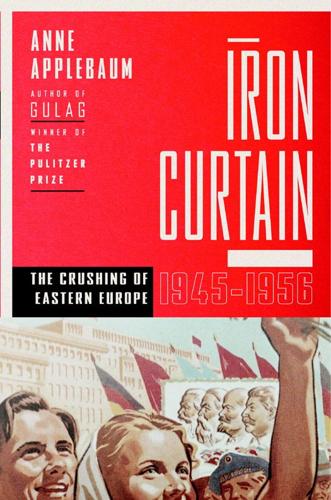
Iron Curtain: The Crushing of Eastern Europe, 1945-1956
by
Anne Applebaum
Published 30 Oct 2012
Those who disobeyed any of the rules could be put in a punishment barrack and deprived of food or could be sent to spend the night lying on a plank in a “wet” cell, where water seeped in from the sides, sometimes knee-deep. To observe all of these Soviet innovations, and presumably to offer suggestions for improvement, Soviet advisers paid periodic visits to the camp, as did Rákosi. As in the USSR a Potemkin village was created in anticipation of their arrival: prisoners were cleaned, workplaces were tidied up, flowers were even planted around the camp perimeter. Just as the Gulag began to close down after Stalin died, so too did Recsk cease to operate after the Soviet leader’s demise. Garasin’s reward—or perhaps his punishment—for importing a Soviet-style concentration camp to Hungary was to become, in subsequent years, the Hungarian ambassador to Mongolia.

Gnomon
by
Nick Harkaway
Published 18 Oct 2017
She went back to the palace and eventually died at the age of sixty-seven, still at least notionally unaware that she ruled an impoverished, brutal nation ripening towards a staggering violence. (She died of a stroke. There was, contrary to the prurient slander, no horse penis involved.) In short, I have been building Potemkin villages: faking it. The trouble is that with Gnomon in my head, and now with the crash dive, I’ve run out of places to put myself that aren’t either my central console or my autonomous survival systems, like breathing and regulating body temperature and so on: all the gubbins that happens in the brain at such a low level that we basically don’t really think about it.

The Road Not Taken: Edward Lansdale and the American Tragedy in Vietnam
by
Max Boot
Published 9 Jan 2018
“It got me down.”41 To get away from “the protocol” and get a taste of the real war, he asked Diem to borrow a helicopter and a member of his staff to tour the provinces. Diem wanted to know where he was going. Lansdale refused to say. “I’ll tell your pilot that; I don’t want to tell you,” he replied, because he didn’t want to give the president time to construct a Potemkin village for his inspection. Diem played along, assigning his secretary of defense, Nguyen Dinh Thuan, to accompany Lansdale, and even providing some sandwiches for them to munch en route.42 Early on the morning of January 10, 1961, only ten days before John F. Kennedy’s inauguration, Lansdale, along with Joe Redick and Thuan, took off in a South Vietnamese C-47 transport aircraft from Saigon bound for Soc Trang, a provincial capital with a South Vietnamese army base set amid one of the world’s lushest rice-growing regions, the Mekong Delta.

Lawrence in Arabia: War, Deceit, Imperial Folly and the Making of the Modern Middle East
by
Scott Anderson
Published 5 Aug 2013
In the end, Meyer opined, it came down to numbers, that “as in the [American] south the white population would never submit to a domination by the negroes, so a Jewish minority in Palestine would never submit to a domination by an Arab majority.” To the American intelligence agent, the commission increasingly appeared to be a kind of political Potemkin village, and he took at least a small measure of delight when the façade it was presenting to the world suffered its first small tear. As might have been predicted, that tear came at the hands of Aaron Aaronsohn. Day after day in Cairo, Aaronsohn suffered in silence through the interminable meetings and speeches to which the commission was subjected, his frustration piqued just as much by the long-winded and quarrelsome Jewish delegations as those of the Arabs.

Seveneves
by
Neal Stephenson
Published 19 May 2015
“You’ve all thought it too,” Sean said. “Even an Asp-hole like me can see it in your faces.” “Okay, maybe we’ve all thought it,” Dinah admitted. “How could you not think it? But, Sean, what you might not have seen, being based on the ground, is how serious everyone up here is about making this work. If it were just a Potemkin village, we’d be seeing different stuff.” Sean held his hands up, palms out, placating her. “Can we just agree that there might be a range of views down on the ground? And that some people, perhaps highly placed, see its primary function as an opiate of the masses? Like the video you pop into your car’s DVD player to keep the kids quiet during a long drive.”
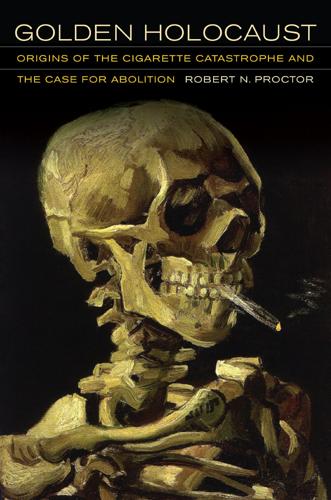
Golden Holocaust: Origins of the Cigarette Catastrophe and the Case for Abolition
by
Robert N. Proctor
Published 28 Feb 2012
At no time did we mention that we were researching on behalf of RJR.34 Of course what really makes this pretense of “corporate and social responsibility” ring hollow is the brute fact of needless megadeaths. One might as well (again) talk about the high ethics of a criminal gang, or the quality of construction at some Potemkin village. USEFUL ALLIES, DEAR FRIENDS What is the point of sports sponsorships? The companies get good advertising, of course, and therefore increased profits (“positive sales ‘ruboff’ ”) but also good PR and political allies. Philip Morris defended its bowling program, for example, by noting that Merit cigarettes were helping to build awareness of the sport in “a smoker-friendly environment.”
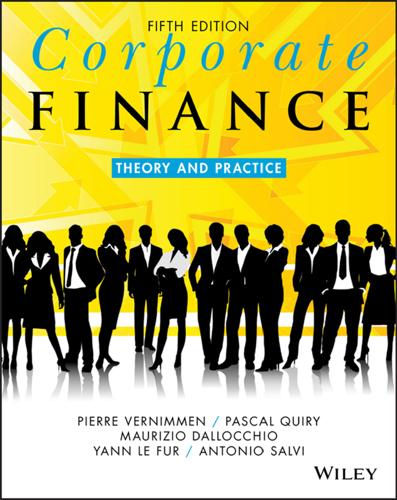
Corporate Finance: Theory and Practice
by
Pierre Vernimmen
,
Pascal Quiry
,
Maurizio Dallocchio
,
Yann le Fur
and
Antonio Salvi
Published 16 Oct 2017
Such changes are complex to put in place, and will require the active cooperation of a number of departments, which more often than not will mean the involvement of general management; carry out an arbitrage between margins and working capital in order to buy or sell cash; create a false appearance, by reducing working capital on the balance sheet using factoring, securitisation, discounting, etc. But let’s not fool ourselves, working capital has not really been reduced, it has only been partly financed, and this part disappears from view in the same way that poverty is invisible in Potemkin villages. These are financing techniques that are discussed in Chapter 21. Only the first two of the above ways of approaching working capital management will lead to the generation of cash without weighing heavily on the cost structure. Working capital management is also a cultural issue. We saw in Chapter 11 that payment periods in Europe differ widely from one country to the next.

Reaganland: America's Right Turn 1976-1980
by
Rick Perlstein
Published 17 Aug 2020
On August 10, Time magazine reported that Jeff Carter, the president’s twenty-seven-year-old son, was a 50 percent partner in a consulting firm that had been paid $200,000 by the corrupt, violent dictator of the Philippines. Then, it was August 11—time for the Democratic convention to begin. * * * THE HOST CITY LINED THE highways from the airports with geraniums—Potemkin-village illusions, just like in Detroit. The social scene was certainly better. A committee of eighty volunteers, recruited from the glitterati to host delegations, competed to one-up one another. Songwriter David Rose bet he could offer more sumptuous hospitality for his state than Sesame Street producer Christopher Cerf could offer his, with a date with The Muppet Show’s Miss Piggy going to the winner.

Europe: A History
by
Norman Davies
Published 1 Jan 1996
Then, as soon as it turned the bend, they stripped off their caps and smocks, dismantled the sets, and rebuilt them overnight further downstream. Since Catherine was Potemkin’s lover at the time, it is not possible to believe that she was ignorant of the ploy; the principal dupes were the foreign ambassadors. ‘Potemkin Villages’ has become a byword for the long Russian tradition of deception and disinformation.1 Force and fraud are the stock-in-trade of all dictatorships. But in Russia Potemkinism has been a recurring theme. On this subject, the views of a professional deceptionist may not be entirely irrelevant. According to a senior KGB defector, Western opinion has been skilfully and systematically duped ever since Lenin’s NEP.